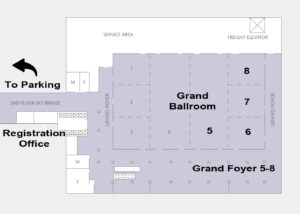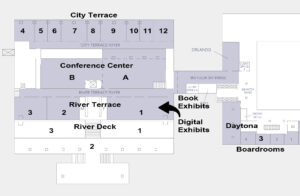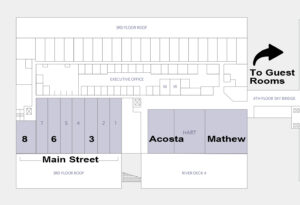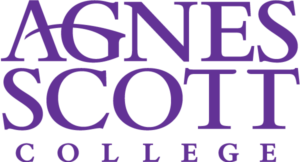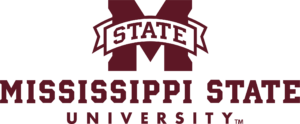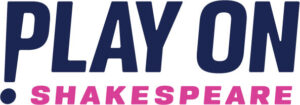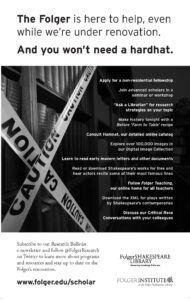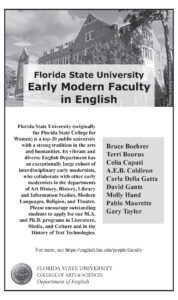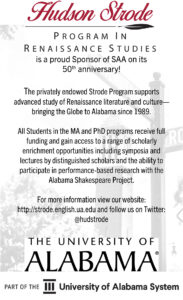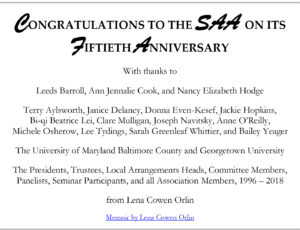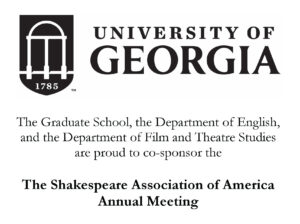2022 Meeting Schedule
All times are in Eastern Daylight Time.
[maxbutton id="40"] [maxbutton id="41"] [maxbutton id="43"]
Virtual
Pre-Conference
Wednesday
6 April ➤
Jacksonville Program
Wednesday
6 April ➤
Thursday
7 April ➤
Friday
8 April ➤
Saturday
9 April ➤
Asynchronous Sessions ➤
Participants ➤
Floor Plan ➤
Sponsors ➤
Virtual
Pre-Conference
Wednesday
6 April ➤
8:00 to 9:30 a.m.
Virtual Panel
Shakespeare’s Alive!ORGANIZER & CHAIR: Katharine A. Craik, Oxford Brookes University
Margaret G. Tudeau-Clayton, Université de Neuchâtel
Shakespeare and the Fullness of Messianic Time
Peter Holbrook, Australian Catholic University
Shakespeare’s “Bright Book of Life”
Pascale Véronique Aebischer, University of Exeter
The Empty Auditorium: Liveness, Aliveness, and Death in Pandemic Broadcasts of Shakespeare
9:30 to 11:30 a.m.
Virtual Digital Exhibit
MEMSLib: A Digital Lockdown LibraryDaniella Marie Gonzalez, Parliamentary Archives, UK House of Lords and Anna Hegland, University of Kent and Carthage College
In response to the COVID-19 pandemic, MEMSlib provides access to open source and subscription-based databases, and digital collections across the medieval and early modern periods helping students and faculty access research material from home. The award-winning site includes resources on early drama, history, and literature, with a focus on both the traditional and creative.
Visit Project Website
View Introductory Video
Virtual Digital Exhibit
The Procedural SonnetCorey Sparks, California State University, Chico
This exhibition presents The Procedural Sonnet, a literary gaming project which uses a narrative hyperlink game platform called Twine to create a video game from the crown of sonnets in Mary Wroth’s Pamphilia to Amphilanthus. The project demonstrates the productive, surprising ways the twenty-first century digital and the early modern poetic collide.
Visit Project Website
View Introductory Video
Virtual Digital Exhibit
ShakespopKoel Chatterjee, Trinity Laban Conservatoire of Dance and Music
Shakespop.co.uk hosts the Shakespeare Fiction podcast, the Shakespop Vlog, and the Shakespop Blog. For the Digital Project, I propose to focus on the Vlog, which includes interviews with comic book writers, game designers, Shakespeare artefact collectors, and Shakespeare hobbyists, and discuss how a Vlog can be used in a classroom setting as an interactive teaching resource, and how it can be used as an alternative assessment tool to the traditional essay.
Visit Project Website
Virtual Digital Exhibit
Turkish ShakespearesMurat Öğütcü, Cappadocia University
Turkish Shakespeares aims to introduce texts, productions, and research on Turkish Shakespeares to a broader international audience. Blog entries, short descriptions, links to productions and adaptations, and a bibliography with hyperlinks of secondary works aim to digitally archive Shakespeare’s presence in Turkey and facilitate international discussions.
Visit Project Website
11:30 a.m. to 1:30 p.m.
Virtual Seminar
Early Modern Ecocriticism and Critical Race StudiesLEADERS: Hillary Eklund, Loyola University New Orleans, Jennifer Park, University of North Carolina, Greensboro, Debapriya Sarkar, University of Connecticut, Avery Point and Ayanna Thompson, Arizona State University
This seminar invites papers on the intersection of early modern ecocriticism and premodern critical race studies. How might studies of early modern literature attend to our presentist concerns? How can research on environmental catastrophes, refugia, or natural resources expand studies of colonization and empire? How might studies of race and gender foster an intersectional ecofeminism? How might we better explore the entanglements of racial, social, and environmental injustice?
– Patricia A. Cahill, Emory University
– Holly E. Dugan, George Washington University
– Nour El Gazzaz, Royal Holloway, University of London
– Frye, University of Wyoming
– Chelsea Keane, University of Califoria, Riverside
– Benjamin C. Miele, University of the Incarnate Word
– Jamie Paris, University of Manitoba
– Anita Raychawdhuri, University of California, Santa Barbara
– Suzanne Tartamella, Henderson State University
Virtual Seminar
Explorations of Cultural Trauma from the Early Modern Stage to TodayLEADER: Devori Kimbro, University of Tennessee, Chattanooga
This seminar will explore the role of cultural trauma in the legacy of the early modern stage. How did early modern playwrights respond to cultural traumas of the day with their productions, and how are modern theatrical companies and directors still drawn to these early modern stories to explore modern cultural trauma, and do such productions result in catharsis or agitation? Participants may explore either original or modern stagings of these texts mounted in response to cultural traumas.
– Richard Ashby, King’s College London
– Emily Sarah Barth, Wagner College
– Christine M. Gottlieb, California State University, East Bay
– Lajos Horváth, Budapest, Hungary
– Carrie Isaacman, University of Colorado, Boulder
– Shannon E. Kelley, Fairfield University
– Elizabeth Pentland, York University
– Melissa Pullara, Toronto, ON
– Amy J. Scott, Toronto, ON
View Abstracts
Virtual Seminar
New Tales of WinterLEADER: Peter Kirwan, University of Nottingham
From tyrannical rulers rejecting truth, to asylum seekers fleeing persecution across borders, to the public trying of a woman’s virtue, to the (mis)fortunes of the itinerant, the stories of The Winter’s Tale have reverberated with unexpected resonance in recent years. This seminar invites participants to contribute new work on race, migration, gender, ecology, childhood, performance, trauma and more, telling new tales of The Winter’s Tale and its resurrections.
– Rita Banerjee, Jawaharlal Nehru University
– Tom Bishop, University of Auckland
– Andrea P. Borunda, University of New Mexico
– Yan Brailowsky, Université Paris Nanterre
– Mark B. Kaethler, Medicine Hat College
– James Kearney, University of California, Santa Barbara
– Yu Jin Ko, Wellesley College
– Laura E. Levine, New York University
– Christina Luckyj, Dalhousie University
View Abstracts
12:00 noon to 1:30 p.m.
Virtual Roundtable
Toward a Critical Audience StudiesORGANIZERS: Sawyer K. Kemp, University of Illinois, Urbana-Champaign and Geoffrey Way, Arizona Center for Medieval and Renaissance Studies
CHAIR: William West, Northwestern University
Emily Lathrop, Washington, D.C.
Erika T. Lin, Graduate Center, CUNY
Madeline Sayet, Arizona State University
Kirsty Sedgman, University of Bristol
Lindsey D. Snyder, Silver Spring, MD
1:30 to 3:30 p.m.
Virtual Seminar
Performance during Pandemic: Shakespeare and CovidLEADER: Douglas M. Lanier, University of New Hampshire
Though the Covid pandemic of 2020 and 2021 was devastating for conventional stage productions, practitioners were ingenious in crafting new ways of performing Shakespeare amidst severe restrictions. This seminar will explore Shakespearean performance during the pandemic: what new formats of performance emerged? What economic, sociopolitical, ethical and ideological issues do these formats and particular productions raise? Case studies and accounts by practitioners are especially welcome.
– Betsy Sullivan Ahmad, University of Southern California
– Thea Buckley, Queen’s University Belfast
– Thomas P. Cartelli, Muhlenberg College
– Susan L. Fischer, Bucknell University
– Christopher D. Foley, University of Southern Mississippi
– Sarah Higinbotham, Emory University, Oxford College
– Erin K. Minear, College of William & Mary
– Gretchen E. Minton, Montana State University
– Scott Russell, Queen’s University Belfast
– Megan Lynn Selinger, University of Waterloo
– Kathleen K. Smith, University of South Carolina, Aiken
View Abstracts
Virtual Seminar
Pericles, Prince of TyreLEADER: Adam Smyth, Balliol College, Oxford University
This seminar will explore current thinking about Pericles, Prince of Tyre. Contributions from all disciplinary and theoretical perspectives are welcome: work that is new, still-in-process, unresolved, speculative or even risky is particularly encouraged. Papers are welcome that consider Pericles in relation to its original historical moment, to our 2020s, to periods in between – or that rethink ideas of contextual frames entirely. What questions are we not yet asking about this play?
– Jane Hwang Degenhardt, University of Massachusetts, Amherst
– Kimberly A. Huth, California State University, Dominguez Hills
– Kent Lehnhof, Chapman University
– Sharon O’Dair, University of Alabama
– Marsha S. Robinson, Clinton, WA
– Stephen Spiess, Babson College
– Jesús Tronch Pérez, Universitat de València
View Abstracts
Virtual Workshop
Playing Cards in Shakespeare’s England (Open Session)LEADER: Cassidy Cash, That Shakespeare Life
The session will outline the physical style of playing cards most popular in Shakespeare’s England, the design choices on the cards themselves, and explain why 16th century French playing cards are closer to what Shakespeare would have used most often rather than 16th-century English playing cards. The workshop will explore the history of playing cards, where the games show up in Shakespeare’s plays, and the role cards had for society during Shakespeare’s lifetime. The session will teach attendees how to play the game of Noddy, a popular card game from Shakespeare’s lifetime. Optionally, we can divide attendees into groups and play the game together as part of the session. Attendees will leave the session with an instruction guide for Noddy they can use in their classrooms after the conference.
Virtual Seminar
Twelfth Night, Part OneLEADER: Emma Smith, Hertford College, University of Oxford
Twelfth Night has been a key text for understanding Shakespeare’s “bittersweet,” “cross-dressing” and “festive” comedy: these critical cliches need rebooting. This seminar invites work on the play that engages with new approaches: performance and theatre history; gender, queer, and trans studies; historical investigations of social rank and status; editing and book history; and critical race studies and the occluded orientalism of its Illyrian setting.
– Nicholas Bellinson, St. John’s College, Annapolis
– Michael Benitez, University of Southern California
– Kyle Louise DiRoberto, University of Arizona
– Loreen L. Giese, Ohio University
– Katherine Hennessey, Wenzhou-Kean University
– Mark Houlahan, University of Waikato
– Catherine S. Lisak, Université Bordeaux Montaigne
– Margaret Ann Maurer, Colgate University
– Holly C. Pickett, Washington and Lee University
– Jade Elizabeth Standing, Corpus Christi College
View Abstracts
4:00 to 6:00 p.m.
Virtual Seminar
Twelfth Night, Part TwoLEADER: Emma Smith, Hertford College, University of Oxford
Twelfth Night has been a key text for understanding Shakespeare’s “bittersweet,” “cross-dressing” and “festive” comedy: these critical cliches need rebooting. This seminar invites work on the play that engages with new approaches: performance and theatre history; gender, queer, and trans studies; historical investigations of social rank and status; editing and book history; and critical race studies and the occluded orientalism of its Illyrian setting.
– Rachel K. Aanstad, Portland, OR
– Sidney J. Fox, Boulder, CO
– Marinela Golemi, United States Military Academy
– Huw Griffiths, University of Sydney
– Frances L. Helphinstine, Morehead State University
– Gwilym Jones, University of Westminster
– Natasha Korda, Wesleyan University
– Jennifer Lewin, University of Haifa
– Sarah Wall-Randell, Wellesley College
View Abstracts
Virtual Digital Exhibit
The Early Modern Women’s Complaint IndexRosalind L. Smith, Australian National University
The Early Modern Women’s Complaint Poetry Index is a digital index of female-authored complaint poetry in English and Scots from 1530 to 1660. The aim of the index is to open up further work on early modern women and complaint poetry, to invite exploration and further analysis of our dataset, and to reinvent the index as a bibliographical tool in a new digital form.
Visit Project Website
Virtual Digital Exhibit
Medieval and Early Modern Orients: A Decolonial, Digital PlatformLubaaba Al-Azami, University of Liverpool, Samera Hassan, London, UK, Aisha Hussain, University of Salford and Hassana Moosa, King’s College London
Medieval and Early Modern Orients (MEMOs) is a women of color led, AHRC-funded, decolonial, digital platform that seeks to further understandings of interactions between England and the pre-modern Islamic world and its notable empires, including the Ottoman, Safavid, and Mughal Empires. The platform showcases the work of the MEMOs research network and its communities.
Visit Project Website
View Introductory Video
Jacksonville Program
Wednesday
6 April ➤
4:00 to 7:00 p.m.
Registration
Advanced Onsite RegistrationRegistration Office
5:00 to 6:00 p.m.
Meeting
Town Hall Business MeetingConference Center B
Open to all registrants.
6:00 to 7:00 p.m.
Cash Bar
River DeckOpen to all registrants and their registered guests.
8:00 to 10:00 p.m.
Performance
Dos FamiliasConference Center B
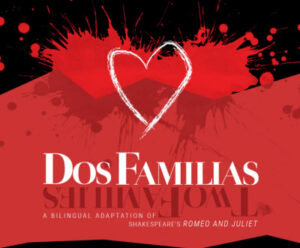
A bilingual adaptation of Shakespeare’s Romeo and Juliet adapted by Joe Falocco and Alfredo Michel Modenessi, from a Spanish translation by Alfredo Michel Modenessi.
Thursday
7 April ➤
8:00 a.m. to 6:00 p.m.
Registration
Registration OfficeBook Exhibits
River Terrace 1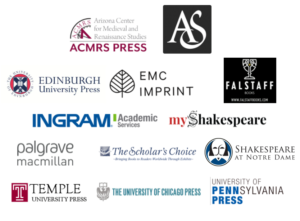
8:00 a.m. to 9:00 a.m.
Meet-and-Greet
Journal Editors Meet and GreetMathews
ORGANIZER: Jeremy Lopez, University of Toronto
10:00 a.m. to 12:00 noon
Interview
A Conversation with Dame Judi DenchGrand 6-8
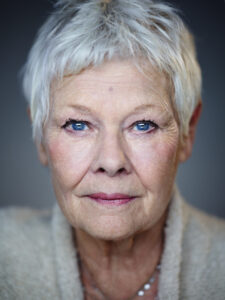
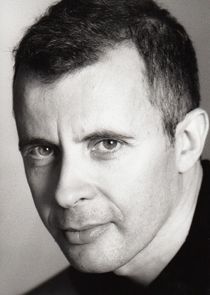
Exclusive for the SAA: Brendan O’Hea interviews Dame Judi Dench on her experiences performing Shakespeare. This pre-recorded session will, if both actors’ schedules permit, be followed by a live Q&A.
Judi Dench began her long and storied career as an actress with roles in at least a dozen of Shakespeare’s plays, as well as plays by Jonson and Webster – and of course, she was memorably cast as Queen Elizabeth I herself in the film Shakespeare in Love (1998) for which she won an Oscar for Best Supporting Actress. Her accolades include seven other Academy Award nominations, along with a Tony, several BAFTA, SAG and Olivier awards.
Brendan O’Hea is an accomplished actor and director who has brought a number of Shakespeare’s plays to the stage at Shakespeare’s Globe.
Moderator: Will Tosh, Shakespeare’s Globe.
Workshop
The Beginning at the EndBoardroom 3
LEADERS: Wesley Broulik and Christie Maturo, Central Connecticut State University / Time’s Fool Company
When one looks at many of Shakespeare’s plays the endings presented in different versions can vary wildly ranging from Folio, to Quarto, to specific choices made by editors. In this workshop we will look closely, through staging on our feet with workshop participants, at the endings of a few selections of Shakespeare’s texts and examine the differences between the choices that have been made. Together we will interrogate how these choices can impact the entirety of a play and what the audience is left with and also why these editors made their choices.
– Judith P. Clark, Stephens College
– Nora L. Corrigan, Mississippi University for Women
– Ryan S. Paul, Texas A&M University, Kingsville
– Joseph Penczak, Troupe of Friends
Seminar
Building New Characters: Casting on Shakespeare’s Stages TodayMain Street 3
LEADER: Amy Cook, Stony Brook University
This seminar will ask participants to think about how casting choices shape the stories plays tell us about who we are, about who belongs to what group, and who doesn’t—with particular attention to questions of race, gender, and physical difference. Participants will view scenes and productions of recently-produced Shakespeare plays to develop a common vocabulary and set of reference points. We will then explore together how casting “works” or doesn’t in these selections, addressing what it means to make such a judgment and what the stakes are in doing so.
– Jennifer Flaherty, Georgia College
– Andrew J. Hartley, University of North Carolina, Charlotte
– Cary M. Mazer, University of Pennsylvania
– Valerie C. Pye, Long Island University, Post
– Robert Shaughnessy, University of Surrey
– Miranda Fay Thomas, Trinity College Dublin
– Kimberly R. West, Cumberland School of Law
– W. B. Worthen, Barnard College, Columbia University
View Abstracts
Seminar
Classicizing Race in Early Modern EnglandCity Terrace 12
LEADER: Joseph M. Ortiz, University of Texas, El Paso
This seminar seeks papers that explore the influence of classical texts on emerging notions of race in early modern England. How were gens and barbarus and other classical markers of difference appropriated by early modern writers to create racial distinctions? How were humanist approaches to classical texts re-deployed to racialize contemporary peoples in the Old or New Worlds? How was racism in antiquity detected, amplified, or overlooked by early modern readers?
– Bernadette Andrea, University of California, Santa Barbara
– Abdulhamit Arvas, University of Pennsylvania
– Christian M. Billing, University of Hull
– Dennis A. Britton, University of British Columbia
– Stephen Cohen, Central Connecticut State University
– Katherine A. Gillen, Texas A&M University, San Antonio
– Benjamin Hilb, Francis Marion University
– Timothy Ryan Love, University of North Texas
– Kirsten N. Mendoza, University of Dayton
– Daniel Normandin, George Mason University
– Curtis Perry, University of Illinois, Urbana-Champaign
– Lauren Robertson, Columbia University
– Emily Lauren Sharrett, Loyola University Chicago
– Donovan H. Sherman, Seton Hall University
View Abstracts
Seminar
Disney+ ShakespeareCity Terrace 8
LEADER: Amy Scott-Douglass, Lorain County Community College
Disney+ and other streaming services have affected our lives, from the way we teach Shakespeare’s plays to the way we survive quarantine. This seminar is devoted to intersections of streaming, subscriptions, and Shakespeare—including the place of Shakespeare in youth and family entertainment and edification, popular culture and Shakespeare, Shakespeare spinoffs, and Shakespeare in the virtual classroom in the age of Covid. Papers might focus on Shakespeare borrowings or offerings in the Disney+, Netflix, or Prime catalogs; subscription Shakespeare, binging, access, economics; Shakespeare and Gen Z; pandemic-era Shakespeare performances and pedagogies. Papers on any early modern playwright are welcome; not limited to Shakespeare.
– Mary Bly Fordham University
– Catherine G. Canino, University of South Carolina, Upstate
– Jim Casey Tyler, TX
– Melissa Croteau, California Baptist University
– Marcela Kostihova, Hamline University
– Courtney Lehmann, University of the Pacific
– Natalie J. Loper, University of Alabama
– James, N. Ortego, II, Troy University, Dothan Campus
– Aaron James Proudfoot, University of Connecticut
– Sophia Richardson, Yale University
– Graham Richard Smith, Azerbaijan State University of Economics
– Michael Ullyot, University of Calgary
– Jennie M. Votava, Allegheny College
Seminar
Divided ShakespeareCity Terrace 10
LEADERS: Darlene Farabee, University of South Dakota and Travis D. Williams, University of Rhode Island
This seminar seeks diverse treatments of “division,” including concepts of separation, fragmentation, rupture, and opposition, in early modern drama: authorship disintegration; textual division; break-up and separation in identities, couples, families, politics, nations, and cultures; unity in division; mathematics, economics, law, rigor and equity. We welcome experimental, exploratory, and emergent work, hoping to emphasize development of ideas and methods over polite commentary on polished writing.
– Andrew Thomas Barnaby, University of Vermont
– Adam Faircloth, Pennsylvania State University
– Marc Geisler, Western Washington University
– Tess Grogan, Yale University
– Gabriel R. Lonsberry, Jacksonville State University
– Maria Isabel Maza, Pennsylvania State University
View Abstracts
Seminar
Early Modern Affective EcologiesCity Terrace 7
LEADERS: Piers Brown, Kenyon College and Allison Deutermann, Baruch College, CUNY
In the early modern period, the passions were often compared to–and understood as influenced by–the natural world. This seminar asks how work on affect, audience, and ecology can speak to and complement each other. How do we conceptualize the relationship between theatrical atmospheres and the weather? What does an ecological understanding of emotion reveal about how people feel together? How might such questions be reshaped by attention to the early modern anthropocene?
– Claire J. Eager, College of Wooster
– Jean E. Feerick, John Carroll University
– Jennifer Higginbotham, Ohio State University
– Bill Kerwin, University of Missouri
– David Landreth, University of California, Berkeley
– Caitlin Mahaffy, Indiana University Bloomington
– Poole, University of Delaware
– Benedict S. Robinson, Stony Brook University
– Adam Rzepka, Montclair State University
– Kelly J. Stage, University of Nebraska, Lincoln
– Rebecca Totaro, Florida Gulf Coast University
– Tiffany J. Werth, University of California, Davis
– William N. West, Northwestern University
Seminar
Early Modern Architectural Spaces: From Hovels to PalacesCity Terrace 9
LEADERS: Kaitlyn Culliton, Texas A&M International University and Ema Vyroubalova, Trinity College Dublin
This seminar examines the buildings in Shakespeare’s drama, from houses, theatres, churches, and prisons to castles and palaces. We investigate the relationship between the complex architecture implied in the play-texts and its constrained representation in both historical and contemporary stage adaptations. We invite papers that consider various functions of architectural spaces in the plays, both as physical representations on stage and as metaphors within the texts.
– Emma K. Atwood, University of Montevallo
– Matthew Biberman, University of Louisville
– Becky S. Friedman, University of Pennsylvania
– Frederick P. Kiefer, University of Arizona
– Zackariah C. Long, Ohio Wesleyan University
– Jeanne H. McCarthy, Georgia Gwinnett College
– Gaywyn E. Moore, HIghland Community College
– Bernice M. Neal, Toronto, ON
– Ronan Paterson, Teesside University
– Gregory Sargent, Western New England University
– Megan Snell, Wells College
– Charlotte Thurston, Graduate Center, CUNY
– Anne-Marie E. Walkowicz, Central State University
View Abstracts
Seminar
Early Modern Ecocriticism and Critical Race StudiesConference Center A
LEADERS: Hillary Eklund, Loyola University New Orleans, Jennifer Park, University of North Carolina, Greensboro, Debapriya Sarkar, University of Connecticut, Avery Point, and Ayanna Thompson, Arizona State University
This seminar invites papers on the intersection of early modern ecocriticism and premodern critical race studies. How might studies of early modern literature attend to our presentist concerns? How can research on environmental catastrophes, refugia, or natural resources expand studies of colonization and empire? How might studies of race and gender foster an intersectional ecofeminism? How might we better explore the entanglements of racial, social, and environmental injustice?
– Erika M. Boeckeler, Northeastern University
– Lowell Duckert, University of Delaware
– Jeffrey B. Griswold, George Mason University
– Bernadette Myers, Columbia University
– Vin Nardizzi, University of British Columbia
– Kathryn Vomero Santos, Trinity University
– Dyani J. Taff, Colby College
– Jonathan Thurston-Torres, Michigan State University
– Andrew C. Wagner, University of California, Los Angeles
Seminar
Early Modern Erogenous ZonesCity Terrace 6
LEADERS: Devin Byker, College of Charleston and Jennifer Holl, Rhode Island College
Erogenous: libidinally charged, erotically sensitive. Zone: a field of contact or arousal. This seminar explores erogenous zones in and with early modernity, positioning erogeneity as a mode of sensation, desire, or contact that extends beyond the genital to the human and nonhuman erotic interactions and yearnings that occur through surfaces, spaces, and media. We welcome papers on nongenital bodily erogenous zones as well as erogenous objects, surfaces, texts, and performance spaces.
– Gina Filo, Southeastern Louisiana University
– Lindsay Adams Kennedy, Lee University
– Cynthia Lewis, Davidson College
– David L. Orvis, Appalachian State University
Workshop
SAA-SHARP: New Directions in the Study of Early Modern Female Book OwnershipCity Terrace 4
LEADERS: Sarah Lindenbaum, Bloomington, IL, Tara Lyons, Illinois State University and Martine Van Elk, California State University, Long Beach
What can we extrapolate from the ever-growing evidence of women owning books? This workshop examines strategies for uncovering evidence of female book ownership, from marginalia to wills, portraits, catalogues, bindings, and bookplates. In addition to exploring research materials, participants will consider issues of methodology in assessing evidence of “owned” texts. What new directions in book history can emerge from these discoveries, their accumulation, and their concomitant gaps?
– Joseph Black, University of Massachusetts, Amherst
– Scott Schofield, Huron University College
– Deneen M. Senasi, Mercer University
– Mary Erica Zimmer, Massachusetts Institute of Technology
View Abstracts
Seminar
Shakespeare’s MadnessesCity Terrace 11
LEADERS: Leslie C. Dunn, Vassar College and Avi Mendelson, London, UK
This seminar explores madness’ interdiscursivity in the drama of Shakespeare and his contemporaries. Some topics: madness vs. mental illness; feigned madness; madness and race, class, gender, sexuality, and disability; supernatural madness: witches, demonic possession, and lycanthropy; pathological madness: melancholy, syphilis, and rabies; Bethlem Hospital (“Bedlam”); phenomena linked to madness: dreams, confusion, error, desire, and ecstasy. Papers on teaching madness in drama are welcome.
– Jessica Apolloni, Christopher Newport University
– Jonathan Baldo, Eastman School of Music, University of Rochester
– Bridget Mary Escolme, Queen Mary University of London
– Sonya Freeman Loftis, Morehouse College
– Amani Liggett, University of California, Santa Cruz
– Brittany Martin, Loyola University Chicago
– Rebecca M. Quoss-Moore, University of Central Oklahoma
– Melanie Rio, University of Maryland
– Pasquale S. Toscano, Princeton University
– Jessica Walker, University of North Georgia
Digital Exhibit
MyShakespeare WebsiteRiver Terrace 1
Greg Watkins, Stanford University and Sally Treanor, Paradigm Education
MyShakespeare provides media-rich, digital editions of six Shakespeare plays as a free, online resource. This digital exhibit will be an opportunity to sample the site and discuss with the creators what we’ve been learning from within the intersections of digital education, remote learning, and Shakespeare studies.
Visit Project Website
Digital Exhibit
Online Featurette Videos to Support the Relaunch of Borrowers and Lenders: The Journal of Shakespeare and Appropriation as Part of the ACMRS PressRiver Terrace 1
Anna Corbould, University of Georgia and Geoffrey Way, ACMRS, Borrowers & Lenders Journal
Borrowers and Lenders is an open-access scholarly periodical about Shakespeare’s afterlives. In order to celebrate our move to ACMRS and our new platform for developing new voices, we are going to be creating a series of “teaser” videos featuring our editorial staff and authors, talking about the journal, why such scholarship matters, and previewing upcoming editions.
1:30 to 3:00 p.m.
Panel
The Shakespeare Editor: Lives & Labor**See linked seminar “Shakespeare’s Editors” on Saturday
Grand 6-8
ORGANIZERS: Claire M. L. Bourne, Pennsylvania State University and Molly G. Yarn, Athens, GA
CHAIR: Brandi K. Adams, Arizona State University
Molly G. Yarn, Athens, GA
The Social Lives of Shakespeare’s Editors
Margaret Jane Kidnie, University of Western Ontario
The Malone Society’s Earliest Women Editors
Claire M. L. Bourne, Pennsylvania State University
Shakespeare by Hand
Misha Teramura, University of Toronto
Editorial Silences
3:30 to 4:30 p.m.
Performance
The PantaloonsCity Terrace 8
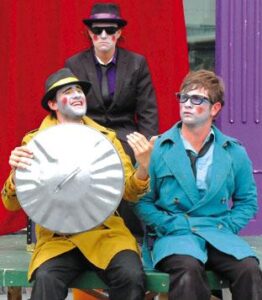
The Pantaloons are an English touring theatre company specializing in open-air productions of the plays of William Shakespeare.
3:30 to 5:30 p.m.
Seminar
Early Modern Fan CultureCity Terrace 4
LEADERS: Kavita Mudan Finn, Manchester, NH, Emily Griffiths Jones, University of South Florida, and Jessica McCall, Delaware Valley University
This seminar will explore the intersection between early modern literary culture and contemporary transformative fandom. We welcome papers that consider proto-fan culture in the early modern period, twentieth- and twenty-first-century fan transformations of early modern works, and appropriations of early modern texts in intermediate periods that might be seen as fannish (e.g. Romantic and Victorian revivals).
– Andrew M. Darr, Centralia High School, MO
– Vernon G. Dickson, Florida International University
– Susan M. Dunn-Hensley, Wheaton College
– Laurie E. Osborne, Colby College
– Elizabeth J. Rivlin, Clemson University
– Lisa S. Starks, University of South Florida
– Frances N. Teague, University of Georgia
View Abstracts
Seminar
Early Modern Theatre Studies and PodcastingMain Street 3
LEADERS: Sheila Coursey, Saint Louis University and Jess Hamlet, Alvernia University
How has the podcast changed early modern theatre studies? As a mode of public-facing scholarship, a teaching tool, an alternative space of scholarly discourse, and an aural medium, the podcast serves as a site for conversations about access, performance, pedagogy, and contingent labor, particularly in the Covid era. We invite papers and/or hybrid projects that explore how podcasts are created, consumed, or taught, as well as potential parallels between podcasting and early modern theatre itself.
– Clio R. Doyle, Queen Mary University of London
– Marissa Greenberg, University of New Mexico
– Elise Lonich Ryan, University of Pittsburgh
View Abstracts
Seminar
EarwormsCity Terrace 5
LEADERS: Sharon J. Harris, Brigham Young University and Thomas Ward, United States Naval Academy
This seminar invites papers that explore early modern earworms, broadly defined as repeating songs or musical fragments, ranging from the catchy and appealing to the persistent and unwelcome. Papers may focus on literary representations of involuntary musical repetition, the viral recirculation of songs and ballads on the early modern stage and elsewhere, cognitive or phenomenological aspects of musical repetition, earworms’ relationship to trauma, or other non-musical kinds of aurivermiculation.
– Linda Phyllis Austern, Northwestern University
– Ursula Clayton, University of Warwick
– Valerie M. Fazel, Arizona State University
– Philip Austin Gilreath, University of Georgia
– Savannah Jensen, University of Georgia
– Dianne Mitchell, University of Colorado, Boulder
– Tony Perrello, California State University, Stanislaus
– Stephanie Pietros, College of Mount St. Vincent
– Jennifer L. Wood, Folger Shakespeare Library
View Abstracts
Seminar
Exciting Explorations in Love’s Labor’s LostCity Terrace 10
LEADER: William R. Rampone, Jr., South Carolina State University
Love’s Labor’s Lost has been associated with the aesthetics of language and the topicality of historical allusions. Because of the increasing need to see the applicability of Love’s Labor’s Lost and its relevance to the 21st century and its concerns regarding racial, gender, environmental issues, a plethora of theoretical paradigms has emerged to address some of these issues. Consequently, this seminar invites a diversity of theoretical approaches that explore the play’s relationship to ecocriticism, critical race theory, feminism, the denouement’s indeterminacy, recent adaptations and appropriations of the play on stage, film, video, and this play’s interplay with other early modern texts.
– Paul Dahlgren, Georgia Southwestern State University
– Scott Maisano, University of Massachusetts, Boston
– Danielle Sanfilippo, Warwick, RI
– Geraldo U. de Sousa, University of Kansas
– Adam Zucker, University of Massachusetts, Amherst
View Abstracts
Seminar
Explorations of Cultural Trauma from the Early Modern Stage to TodayCity Terrace 6
LEADER: Devori Kimbro, University of Tennessee, Chattanooga
This seminar will explore the role of cultural trauma in the legacy of the early modern stage. How did early modern playwrights respond to cultural traumas of the day with their productions; how are modern theatrical companies and directors still drawn to these early modern stories to explore modern cultural trauma, and do such productions result in catharsis or agitation? Participants may explore either original or modern stagings of these texts mounted in response to cultural traumas.
– Robin Hizme, Queens College, CUNY
– Jeffrey Scott Squires, Carnegie Mellon University in Qatar
View Abstracts
Seminar
“I engraft you new”City Terrace 9
LEADERS: Paul Edmondson, Shakespeare Birthplace Trust and Robert Stagg, Shakespeare Institute / University of Oxford
We seek to engraft Shakespeare’s sonnets anew. Recent work encourages us to think differently about (for example) their sexuality and their order of composition, and we have hopefully left behind tired, eighteenth-century narrative paradigms. What happens when we read the sonnets in the light of global contexts, critical race theory, ecocriticism, and trans sexualities? What was their place and purpose in Shakespeare’s literary and theatrical culture, and in our own, and in social media?
– Walter I. Cohen, University of Michigan
– John S. Garrison, Grinnell College
– Randall Martin, University of New Brunswick
– Linda McJannet, Bentley University
– Anna Reynolds, University of St. Andrews
– Don Rodrigues, University of Memphis
– Katherine W. Scheil, University of Minnesota
– Kay Stanton, California State University, Fullerton
Seminar
(In)Significant ShakespeareCity Terrace 12
LEADERS: Coen Heijes, University of Groningen and David Ruiter, University of California, San Diego
Within a growing effort to connect Shakespeare with broader discourses on today’s challenges, such as the pandemic, racism, sexual abuse, populism, and sustainability, we call on papers by academics, teachers and practitioners that: highlight success stories in achieving positive change; illustrate the difficulties and failures on this road to significance; and/or question the very notion of Significant Shakespeare and argue that this is or is not what we should engage in at all.
– Clara Biesel, University of Minnesota
– Heather C. Easterling, Gonzaga University
– Michael D. Friedman, University of Scranton
– Robin Alfriend Kello, University of California, Los Angeles
– Avraham Oz, University of Haifa & Alfa Theatre, Tel Aviv
– William Floyd Wolfgang, Stevenson University
– Jayme M. Yeo, Belmont University
Seminar
Shakespeare and HealthBoardroom 3
LEADERS: Roberta Barker, Dalhousie University, Claire Hansen, Australian National University, and Bríd Phillips, Edith Cowan University
Our seminar explores exile—estrangement from one’s homeland—broadly conceived in Shakespeare: the forced immigrant, the banished refugee, the person politically, religiously, or culturally othered. Essays might analyze exile within plays; early modern exilic practices; Shakespeare’s contact with exiles; the author’s proximity to exilic ontologies; stage histories treating exile; studies of exile in performance or film; and how global Shakespearean production today might refigure localized exile.
– Emily D. Bryan, Sacred Heart University
– Matthew Charles Carter, Clayton State University
– Allison Kellar, Wingate University
– Aaron Wells Kitch, Bowdoin College
– Ágnes Matuska, Szegedi Tudományegyetem
– Jennifer R. Rust, Saint Louis University
– Jay Zysk, University of Massachusetts, Dartmouth
View Abstracts
Seminar
Shakespeare and the Staging of ExileConference Center A
LEADERS: Stephanie Chamberlain, Southeast Missouri State University, Vanessa I. Corredera, Andrews University, and James M. Sutton, Florida International University
Our seminar explores exile—estrangement from one’s homeland—broadly conceived in Shakespeare: the forced immigrant, the banished refugee, the person politically, religiously, or culturally othered. Essays might analyze exile within plays; early modern exilic practices; Shakespeare’s contact with exiles; the author’s proximity to exilic ontologies; stage histories treating exile; studies of exile in performance or film; and how global Shakespearean production today might refigure localized exile.
– Charlotte Artese, Agnes Scott College
– Rebekah Bale, Hong Kong Shue Yan University
– Brendan Canfield, Tufts University
– Alexandra Carter, The Emery/Weiner School
– Brandon Christopher, University of Winnipeg
– Claire Dawkins, Stanford Online High School
– Amir Khan, Dalian Maritime University
– Scott Oldenburg, Tulane University
– L. Monique Pittman, Andrews University
– David A. Summers, Capital University
View Abstracts
Seminar
Shakespeare and Wisdom LiteratureCity Terrace 11
LEADERS: Sean Keilen, University of California, Santa Cruz and Julia R. Lupton, University of California, Irvine
Wisdom literature transmits philosophical, pragmatic, poetic, and theological aspirations through myth and maxim as well as epistle and essay. Egyptian, Buddhist, and Arabic wisdom literature mixed with Greek and Jewish traditions to contribute to a common thought world taken up by both Christianity and Islam. How does friendship model the reception of pagan wisdom in Shakespeare? How do the mixed sources of wisdom transcend confessionalism? What does wisdom offer the humanities today?
– Kristen Abbott Bennett, Framingham State University
– John D. Cox, Hope College
– Tracy C. Cummings, San Diego State University
– Lars Engle, University of Tulsa
– Daniel R. Gibbons, Catholic University of America
– Hannibal Hamlin, Ohio State University
– John J. Joughin, University of East London
– Caroline Lion, Rogue Community College
– Marguerite A. Tassi, University of Nebraska
– Shaina Trapedo, Yeshiva University
– Michael West, University of Dallas
Workshop
Shakespeare and Women’s LeadershipAcosta
LEADER: Natalie Eschenbaum, St. Catherine University
This workshop is designed for Shakespeare instructors and those who serve in leadership roles at their institutions (e.g., directors, chairs, deans). We will read scenes from Shakespeare alongside some contemporary leadership theory to consider what Shakespeare teaches us about women’s and feminist leadership, in particular. Participants will use Shakespeare’s teachings about women and leadership to develop a lesson plan, a “key results” plan for change, a mission/vision statement, or similar.
– Jennifer Feather, University of North Carolina, Greensboro
– Chantelle MacPhee, Saint Leo University
– Kate McPherson, Utah Valley University
– Kathryn M. Moncrief, Worcester Polytechnic Institute
– Jessica C. Murphy, University of Texas, Dallas
– Kristen L. Olson, Pennsylvania State University
– Catherine E. Thomas, Georgia Gwinnett College
View Abstracts
Seminar
Shakespeare in Quarto and FolioCity Terrace 7
LEADERS: Joshua R. Held, Trinity International University and Paul Werstine, Western University
In anticipation of the 2023 quadricentennial of Shakespeare’s First Folio, this seminar invites engagement with this highly significant, even fetishized, volume alongside other printed texts, including quartos, later folios, and (not to forget) octavos. How have these texts—and increasingly open methods of access to them—influenced the editing, acting, and teaching of Shakespeare? We welcome diverse approaches, including speculation about the origins and effects of variant texts.
– Meghan C. Andrews, Lycoming College
– Alan B. Farmer, Ohio State University
– Lara D. Hansen, University of Nevada, Reno
– Adam G. Hooks, University of Iowa
– Mark C. Hulse, Jackson College
– Sujata Iyengar, University of Georgia
– Zachary Lesser, University of Pennsylvania
– Suzanne Tanner, University of Kansas
– Evelyn Tribble, University of Connecticut
– Steven Urkowitz, City College of New York, CUNY
– Daniel Yabut, CNRS/Université Paul-Valéry Montpellier III
View Abstracts
6:00 to 7:30 p.m.
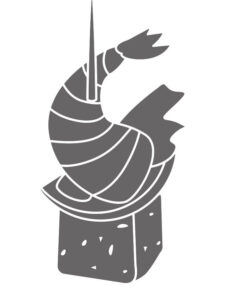
Annual Reception
Grand FoyerOpen to all registrants for the Fiftieth Annual Meeting and their guests. Each guest must have an SAA name tag in order to attend; guest tags may be requested and purchased on the conference registration form.
8:00 to 10:00 p.m.
Film
Joe Papp in Five ActsGrand 6-8
Q&A with directors Tracie Holder and Karen Thorsen to follow screening, moderated by Erika T. Lin.
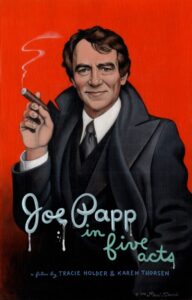 Directed by Tracie Holder and Karen Thorsen, Joe Papp in Five Acts is the story of New York’s indomitable street-wise champion of the arts who introduced interracial casting to the American stage and brought us free Shakespeare in the Park, Hair, and A Chorus Line.
Directed by Tracie Holder and Karen Thorsen, Joe Papp in Five Acts is the story of New York’s indomitable street-wise champion of the arts who introduced interracial casting to the American stage and brought us free Shakespeare in the Park, Hair, and A Chorus Line.
Friday
8 April ➤
7:30 to 8:30 a.m.
Yoga
Shakespeare YogaRiver Deck 1
Kathryn Moncrief, RYT-200, Worcester Polytechnic Institute
Open to all registrants for the Fiftieth Annual Meeting and registered guests.
8:00 a.m. to 6:00 p.m.
Registration
Registration OfficeBook Exhibits
River Terrace 1
8:00 to 9:00 a.m.
Breakfast
Graduate Student BreakfastRiver Deck 2
Hosted by the Trustees of the Association.
9:00 to 10:30 a.m.
Panel
Prose by Any Other NameGrand 6-8
ORGANIZERS: Sarah Neville, Ohio State University and Eric Rasmussen, University of Nevada
CHAIR: Eric Rasmussen, University of Nevada
Sarah Neville, Ohio State University
Pistol’s Metered Prose
Anupam Basu, Washington University in Saint Louis
Form(at): Prose Style and the Layout of Early English Books
Douglas Bruster, University of Texas at Austin
The Language of Worldmaking
Matthew Hunter, Texas Tech University
Speaking in Print
10:30 to 11:00 a.m.
Coffee Break
Grand Foyer 5-811:00 a.m. to 1:00 p.m.
Seminar
EEBO Finds, Failures, and FuturesBoardroom 3
LEADER: Jonathan P. Lamb, University of Kansas
This seminar focuses on the use of Early English Books Online for scholarship and teaching. What scholarly narratives does EEBO permit, constrain, prevent? What questions of access, method, or interface does it raise? What can/can’t we find on EEBO? We’ll showcase how scholars use EEBO, discuss the stakes, and imagine EEBO’s futures. All are welcome: critiques, defenses, research projects, editorial, philological, or computational studies, and beyond! EEBO access not required to participate.
– Lara Bovilsky, University of Oregon
– Michael Gavin, University of South Carolina
– William M. Hamlin, Washington State University
– John Ladd, Denison University
– Jesse M. Lander, University of Notre Dame
View Abstracts
Seminar
Hiding in Plain Sight: Archival Discoveries in Early Modern Theater History and BiographyConference Center A
LEADER: Alan H. Nelson, University of California, Berkeley
Documentary evidence concerning Early Modern playhouses, playing companies, performances, publications, manuscripts, and theatrical personnel, is increasingly available as access to archives and libraries is enhanced by updated catalogues, digitization, and indexes. This seminar invites papers on entirely new archival discoveries, as well as papers on historical or more recent discoveries which might have received less publicity and recognition. Papers in the latter category should link such discoveries to further advances in scholarly understanding.
– Cyndia S. Clegg, Pepperdine University
– David Kathman, Chicago, IL
– Siobhan C. Keenan, De Montfort University
– Kara J. Northway, Kansas State University
– Gerit Quealy, New York, NY
– Paul Whitfield White, Purdue University
View Abstracts
Seminar
Invention, Part OneCity Terrace 11
LEADER: Wendy Beth Hyman, Oberlin College
This seminar invites work on early modern “inventions”—invented languages, instruments, engines, techniques, paradigms, poetic forms, thought processes, worlds—and papers theorizing the nature of invention itself. Is invention “nature’s child,” or the product of ingenious contrivance? What is its proximity to other modes of making or knowing? Papers may range from poetics to natural philosophy, stagecraft to intellectual history, curious gizmos to elaborate schemes.
– Amanda B. Atkinson, Southern Methodist University
– Craig Dionne, Eastern Michigan University
– Alexander Paulsson Lash, National Taiwan University
– Victor Lenthe, Bilkent University
– Richard Preiss, University of Utah
– Jessica Rosenberg, University of Miami
– Emily Shortslef, University of Kentucky
– Whitney Sperrazza, Rochester Institute of Technology
– Scott A. Trudell, University of Maryland
– Laura Williamson-Ambrose, Saint Mary’s College
View Abstracts
Seminar
Mothering in Early Modern CultureCity Terrace 12
LEADERS: Elizabeth Steinway, Colorado State University and Amanda Zoch, Fort Collins, CO
This seminar invites participants to examine the act of mothering in early modern culture. All genres are welcome, and we are especially interested in queer, monstrous, or marginalized examples of mothering. Participants might consider how mothering is defined; if that definition is stable; mothering’s relationship to reproductive knowledge; how mothering intersects with race, class, gender, or region; Shakespeare’s “bad” mothers; or if one can mother from beyond the grave.
– Katarzyna Burzyńska, Adam Mickiewicz University
– Tyler Jean Dukes, Texas Christian University
– Anna Susan Graham, Queen’s University Belfast
– Ross M. Knecht, Emory University
– Ha Le, Indiana University Bloomington
– Elizabeth Ann Mackay, University of Dayton
– Anne Llewellyn Morgan, University of Alabama
– Maria Teresa Micaela Prendergast, College of Wooster
View Abstracts
Seminar
Performance during Pandemic: Shakespeare and CovidCity Terrace 4
LEADER: Douglas M. Lanier, University of New Hampshire
Though the Covid pandemic of 2020 and 2021 was devastating for conventional stage productions, practitioners were ingenious in crafting new ways of performing Shakespeare amidst severe restrictions. This seminar will explore Shakespearean performance during the pandemic: what new formats of performance emerged? What economic, sociopolitical, ethical and ideological issues do these formats and particular productions raise? Case studies and accounts by practitioners are especially welcome.
– Gemma Kate Allred, Université de Neuchâtel
– Benjamin Broadribb, Shakespeare Institute, University of Birmingham
– Méline Dumot, ENS, Université de Lyon
– Brent Griffin, Resurgens Theatre Company
– Musa Gurnis, Baruch College/Bedlam Theatre
– Ronan James Hatfull, University of Warwick
– Nathaniel Hodes, Bentley University
– Alfredo Michel Modenessi, Universidad Nacional Autónoma de México
– Erin Sullivan, Shakespeare Institute, University of Birmingham
– Emily Yates, Michigan State University
View Abstracts
Seminar
“Poison in Jest”: Racist Laughter across Genres and NationsCity Terrace 5
LEADERS: Pamela A. Brown, University of Connecticut and Robert Hornback, Oglethorpe University
How did racist laughter work to promote and spread race-belief in early modern drama and culture? How did racial humor serve as a discursive practice as part of race formation? How did laughter work to produce whiteness (or sometimes mock it)? We invite multiple approaches to such questions; papers might address jests and insults, but can also treat motifs, roles, and plots in any genre or historical period, in plays by Shakespeare or others. Particularly welcome are critical race theory, transnational, performance theory, and pedagogical approaches.
– Miles P. Grier, Queens College, CUNY
– John C. Higgins, Case Western Reserve University
– Maya Mathur, University of Mary Washington
– Ian F. Moulton, Arizona State University
– Emily Weissbourd, Lehigh University
View Abstracts
Seminar
Queering Death, Part OneCity Terrace 10
LEADERS: Lauren Shohet, Villanova University and Christine Varnado, University at Buffalo, SUNY
This seminar explores death as materially, cosmologically, and aesthetically complicated. What becomes visible through attention to practices, plays, experiences, objects, and belief systems that highlight death’s immanent ambiguities? Possible topics: resurrection, revenants, apparitions, theatrical death, faked death, coma, delirium, abortive reproduction and the unborn, afterlives, remains, morbid eroticism, kinship and inheritance, archival resurrection, failed apocalypse, messianic time, and the lifespans of variously mediated and temporized forms of self.
– Benjamin Bertram, University of Southern Maine
– Alice Dailey, Villanova University
– Derrick E. Higginbotham, University of Hawaiʻi, Mānoa
– Ja Young Jeon, Graduate Center, CUNY
– James Yukiko Mulder, Bentley University
– Robert Ormsby, Memorial University of Newfoundland
– Lisa Robinson, St. John’s University
– Penelope Meyers Usher, Barnard College
View Abstracts
Seminar
Rethinking CivilityCity Terrace 9
LEADER: Emily King, Louisiana State University
Although civility is cast as a virtuous reprieve from discourtesy, it often suppresses conflict and conceals violence. This seminar explores how civility—that is, civil behaviors, discourse, and expectations for—intersects with early modern structures of race, class, gender, sexuality, disability, nationalism, and indigeneity. On what grounds is civility extended? By what modes is it inculcated or weaponized? To what extent does the Shakespearean world recognize civility’s wounding power?
– Claire M. Busse, La Salle University
– Douglas I. Clark, Université de Neuchâtel
– Christopher Crosbie, North Carolina State University
– Christine Hoffmann, West Virginia University
– Fayaz Kabani, Allen University
– Chris Klippenstein, Columbia University
– Erzsi Kukorelly, Université de Genève
– Kristina Lucenko, Stony Brook University
– John M. Mucciolo, Chatham, NJ
– Justin P. Shaw, Clark University
– Kristina Sutherland, Baton Rouge, LA
– Simone Waller, Reed College
– Patricia B. Wareh, Union College
View Abstracts
Seminar
Rethinking the Early Modern Literary CaribbeanCity Terrace 6
LEADER: Steve Mentz, St. John’s University
Being in Florida and near the Caribbean can reframe ideas about English identities, race, literary culture, ecological change, and global ventures. Placing the region, which was shaped by encounters among Indigenous, African, and European groups, at the center of analysis, we invite papers on Caribbean connections with Shakespeare and early modern English literature. We welcome approaches that engage critical theorizations of the region’s encounters before, during, and after Shakespeare’s time.
– Ariane M. Balizet, Texas Christian University
– Andrew Bozio, Skidmore College
– Daniel G. Brayton, Middlebury College
– Sid Dobrin, University of Florida
– Valerie Forman, New York University
– John M. Kuhn, SUNY Binghamton
– Caro Pirri, University of Pittsburgh
– Maria Shmygol, National University of Ireland, Galway
– Olga L. Valbuena, Wake Forest University
– Daniel J. Vitkus, University of California, San Diego
– Molly A. Warsh, University of Pittsburgh
View Abstracts
Seminar
Shakespeare and EmpathyCity Terrace 8
LEADER: Katherine Attié, Towson University
This seminar welcomes papers about empathy in – or as response to – Shakespeare’s works. How does Shakespeare represent empathy (or a lack thereof) in and between characters on stage? How do characters arouse empathy in an audience? Some possible thematic and critical contexts for a discussion of empathy include justice and mercy, theology and religion, diversity and difference, the non-human, Aristotelian dramatic theory, perception and cognition, affect theory, and reception theory.
– Katharine Cleland, Virginia Tech
– Paula Marantz Cohen, Drexel University
– Deyasini Dasgupta, Syracuse University
– Jennifer J. Edwards, University of Oxford
– John Wayne Gulledge, Emory University
– Stephen Spencer, Stern College for Women, Yeshiva University
– Luke Wilson, Ohio State University
View Abstracts
Seminar
Shakespeare and FranceMain Street 3
LEADER: John Cameron, Saint Mary’s University
This seminar looks at the relationship between Shakespeare and the French. It prompts participants to explore this from a variety of angles, such as the representation of France and of French characters, the attitudes of the English characters to France, and French sources Shakespeare made use of in his drama, Shakespeare’s reception in France, translations of Shakespeare into French, and important French productions of Shakespeare’s plays. Open to a variety of different perspectives, approaches, and methodologies, this seminar hopes to address the various ways that one could tackle this myriad subject and see where the discussion might go from here.
– Ellen Caldwell, Clarkson University
– Eric M. Johnson, Folger Shakespeare Library
– Philip Goldfarb Styrt, St. Ambrose University
– Andrea F. Trocha-Van Nort, United States Air Force Academy
– Ana Weinberg, De Montfort University
View Abstracts
Seminar
Shakespeare between Past and PresentCity Terrace 7
LEADER: Patrick Gray, Durham University
What is the relation between Shakespeare’s past and our present? How can we best situate Shakespeare and his contemporaries in relation to intellectual history or, as it was once known, the history of ideas? This seminar welcomes case studies in genealogies of influence and analogies between ideas, as well as conceptual reflections on competing methods of historicizing patterns of belief, with reference to literature, theory, politics, philosophy, and/or theology, as well as performance.
– Russ Bodi, Owens College
– Jessica K. Chiba, University of Birmingham
– Erich D. Freiberger, Jacksonville University
– Zoltán Márkus, Vassar College
– Cyrus Mulready, SUNY New Paltz
– Kurt A. Schreyer, University of Missouri, Saint Louis
– Rup K. Shrestha, Shakespeare Institute, University of Birmingham
– John-Paul Spiro, Villanova University
– Stephen Wittek, Carnegie Mellon University
Digital Exhibit
Shakespeare CensusRiver Terrace 1
Adam G. Hooks, University of Iowa and Zachary Lesser, University of Pennsylvania
The Shakespeare Census attempts to locate and describe all extant copies of all editions of Shakespeare’s works through 1700. Details about marginalia, previous ownership, and other signs of reading help book historians, bibliographers, and editors to understand Shakespeare’s changing place in the broader culture. Users can search by a variety of bibliographic features important to current work in the field.
Visit Project Website
Digital Exhibit
Shakespeare in the Royal CollectionRiver Terrace 1
Sally Barnden, King’s College London and Gordon McMullan, King’s College London
Shakespeare in the Royal Collection is a UK-based research project exploring the Shakespeare-related holdings in the Royal Collection and analyzing the British royals’ relationship with Shakespeare between 1714 and 1945. Its outputs include a searchable database of around 2000 Shakespeare-related objects, an online exhibition and a set of 3D digital visualizations.
Visit Project Website
1:30 to 3:00 p.m.
Annual Luncheon
River Deck 2Open to all registrants for the Fiftieth Annual Meeting. Additional guest tickets may be purchased in advance. Member tickets are included in registration envelopes (but may not be available to onsite registrants).
3:30 to 5:00 p.m.
Plenary Panel
Fifty Years of Early Modern Critical Race Studies*This session is livestreamed to Pre-Conference participants.
Grand 5-8
ORGANIZER: Ian Smith, Lafayette College
CHAIR: Farah Karim-Cooper, Shakespeare’s Globe
Ruben Espinosa, Arizona State University
Borders, Bridges, Shakespeare, and My Twin Skin
Lisa M. Barksdale-Shaw, Arizona State University
“Unless thou bear a mind courageous and invincible”: Neurological Imaging, Race, and Christopher Marlowe’s Tamburlaine
Ian Smith, Lafayette College
Blind Spots: Confessions of a Shakespeare Scholar
5:15 to 7:30 p.m.
Cash Bar
Scholars of Color Social and Cash BarRiver Deck 2
Co-sponsored by the Folger Shakespeare Library.
Open to all registrants and their guests.
7:30 to 8:30 p.m.
Interview
Adjoa Andoh ConversationRiver Deck 2
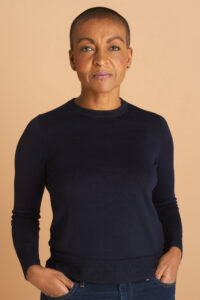 Familiar to recent audiences for her role as Lady Danbury in the Netflix hit Bridgerton, Adjoa Andoh has performed in many of Shakespeare’s plays during her illustrious career on stage and screen. She recently directed and starred in a production of Shakespeare’s Richard II for the Sam Wannamaker Theater featuring a cast of all female actors of color. Farah Karim-Cooper will lead a discussion with Adjoa Andoh of her innovative work with Richard II and other related topics. Their conversation will be followed by a Q&A with the audience.
Familiar to recent audiences for her role as Lady Danbury in the Netflix hit Bridgerton, Adjoa Andoh has performed in many of Shakespeare’s plays during her illustrious career on stage and screen. She recently directed and starred in a production of Shakespeare’s Richard II for the Sam Wannamaker Theater featuring a cast of all female actors of color. Farah Karim-Cooper will lead a discussion with Adjoa Andoh of her innovative work with Richard II and other related topics. Their conversation will be followed by a Q&A with the audience.
Saturday
9 April ➤
8:00 a.m. to 12:00 noon
Information
Registration OfficeBook Exhibits
River Terrace 1
9:00 to 10:30 a.m.
Roundtable
Asexual Renaissance ResonancesGrand 6-8
ORGANIZER & CHAIR: Liza Blake, University of Toronto
Catherine R. Cliffords, Graceland University
Twelfth Night and Asexual Possibility: How to Read Asexually
Urvashi Chakravarty, University of Toronto
Early Modern R/Ace Making: Compulsory Sexuality and the Production of Whiteness
Aley O’Mara, Syracuse, NY
“No mo’ marriage”: Asexual Apocalypse in Hamlet
*View Recording
Rachel Chung, University of Edinburgh
Asexual Violence: Queer Revenge in Gallathea and Taming of the Shrew
Panel
Indian Shakespeares/Regional InterventionsGrand 5
ORGANIZER: Mark Thornton Burnett, Queen’s University Belfast
CHAIR: Elizabeth J. Rivlin, Clemson University
Poonam Trivedi, Indraprastha College, University of Delhi
“To be or not to be”… Lear: Natsamrat and Marathi Film and Theatre
*View Recording
Taarini Mookherjee, Columbia University
“Speak the language of both east and west”: Diasporic Shakespeare in Shishir Kurup’s Merchant on Venice
Mark Thornton Burnett, Queen’s University Belfast
“All the perfumes of Arabia”: Community and Globality in Paddayi/West, a Tulu Language Film Adaptation of Macbeth
10:30 to 11:00 a.m.
Coffee Break
Grand Foyer 5-811:00 a.m. to 12:30 p.m.
Plenary Panel
NextGenPlen*This session is livestreamed to Pre-Conference participants.
Grand 5-8
ORGANIZERS: Members of the NextGenPlen Committee
CHAIR: Lucy Munro, King’s College London
Beatrice Bradley, University of Chicago
How to Do Things with Sweat
Evyan Dale Gainey, Columbia University
The Specter of Disability in Early Modern Drama
Hannah Korell, McGill University
The Devil You Know: Anti-Black Racism and the Mythologies of English Witchcraft
Bailey Sincox, Harvard University
Epicene: Female Revenge in the Husband-Taming Comedy
John Yargo, University of Massachusetts, Amherst
Did Environmental Catastrophe Have a Renaissance?
12:30 to 2:30 p.m.
Screening
Selected Episodes of BedlamCity Terrace 7
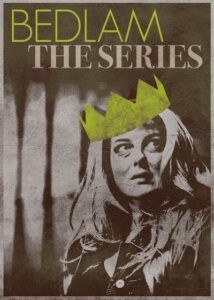
Directed by Eric Tucker
Bedlam: The Series twists Shakespearean characters and plots we know and love – King Lear, The Merry Wives of Windsor, The Merchant of Venice– into a new story of love, deceit, betrayal and revenge. More The Sopranos than doublet and hose, in Bedlam you’ll find family drama, organized crime, and romantic comedy stewed together and told in Shakespeare’s own delicious words. This mini season enters you into this fractious, delightful world where everything may not be exactly as it seems – but it is Bedlam.
2:00 to 3:30 p.m.
Roundtable
Feminist Debates and Early Modern Studies*This session is livestreamed to Pre-Conference participants.
Grand 6
ORGANIZER & CHAIR: Lara Dodds, Mississippi State University
Cristina León Alfar, Hunter College, CUNY
Feminist Ethics and Early Modern Studies
Valerie Billing, Central College
Loud Feminism
Vanessa M. Braganza, Harvard University
Un(re)marked, or, Feminism’s No-Man’s-Land
Jean Elizabeth Howard, Columbia University
“Bear Your Body More Seemly”: Performing Indecorous Femininity in Shakespeare’s Plays
Niamh J. O’Leary, Xavier University
Feminist Pedagogy from Early Modern Women Writers to Introductory First-Year Courses
Panel
Nature, Art and Ethics in The Winter’s TaleGrand 5
ORGANIZER: Paul A. Kottman, New School for Social Research
CHAIR: Tanya Pollard, Brooklyn College, CUNY
Sarah Beckwith, Duke University
Hope in The Winter’s Tale
Daniella Jancsó, Ludwig-Maximilians-Universität München
Shifting Boundaries: The Art of Mastering Loss
*View Recording
Paul A. Kottman, New School for Social Research
Ethics after Art
4:00 to 6:00 p.m.
Seminar
Archival Violence and Early Modern Research: Building Inclusive PracticeBoardroom 3
LEADERS: Erin Julian, University of Roehampton and Clare M. McManus, University of Roehampton
How can intersections between the early modern archives and queer theory, critical race studies, feminism and disability studies generate inclusive methodologies for archival research, mitigating the violence of selection, access and terminology? We seek contributions connecting archives to PaR, theatre history, historiography and textual studies; on curatorial practice, digital collections and open access; and speculation on new archives for cultural institutions and marginalized communities.
– Hailey Bachrach, University of Roehampton
– Sally Barnden, King’s College London
– Jen Boyle, Coastal Carolina University
– Mel Harrison, King’s College London
– Alexa Alice Joubin, George Washington University
– Oliver Lewis, University of Roehampton
– Allison Machlis, Meyer, Seattle University
– Sandra Young, University of Cape Town
View Abstracts
Seminar
Cervantes’s English TransformationsCity Terrace 5
LEADERS: José A. Pérez Díez, University of Leeds and Michael M. Wagoner, United States Naval Academy
This seminar sets out to re-evaluate the pervading influence of the works of Miguel de Cervantes on the intellectual, cultural, and political life of Jacobean and Caroline England. We welcome papers exploring the reception of Cervantes’s fiction among early English readers, examining the work of translators, essayists, poets, and polemicists, and tracing his impact on commercial plays written by dramatists such as Fletcher, Massinger, Beaumont, Field, Middleton, and Shakespeare.
– Eric J. Griffin, Millsaps College
– Victoria Muñoz, Hostos Community College, CUNY
– Alexander Samson, University College London
– Gary L. Taylor, Florida State University
View Abstracts
Seminar
Early Modern City ComediesCity Terrace 10
LEADER: Lilly Berberyan, Northwestern State University of Louisiana
This seminar invites papers that focus on city comedies and encourages explorations of ideas, concepts, and characters that are under-represented in Shakespearean drama. With a wider range of characters and figures, city comedies capture a unique version of early modern society and culture, granting more nuanced understandings of the period. Various perspectives and methodologies (gender, critical race, queer, materialist, postcolonial, performance, or pedagogical approaches) are encouraged.
– Douglas H. Arrell, University of Winnipeg
– Jennifer Thorup Birkett, University of Notre Dame
– William Casey Caldwell, Roosevelt University
– Amanda Di Ponio, Huron University College
– Edward Gieskes, University of South Carolina
– Laura E. Kolb, Baruch College, CUNY
– Alicia J. Meyer, University of Pennsylvania
– John Wilson Milam, University of Texas, San Antonio
– Nova Myhill, New College of Florida
– Bradley D. Ryner, Arizona State University
– Edel Semple, University College Cork
– Christi Spain-Savage, Siena College
– Rob Wakeman, Mount St. Mary College
View Abstracts
Seminar
Gender and ScienceCity Terrace 7
LEADERS: Jennifer Munroe, University of North Carolina, Charlotte and Mary Trull, St. Olaf College
This workshop explores the relationship between gender, nature, and knowledge-making in early modern England, interpreting “science” widely to include all theories of natural knowledge as well as practices like experimentalism and household medicine. We invite participants to consider how gender shaped early modern scientific accounts of the world; to disturb the boundaries between science and the literary; to highlight the work of women writers; and to explore intersectional approaches.
– Lee Emrich, Northeastern University
– Sara D. Luttfring, Pennsylvania State University, Behrend
– Hillary M. Nunn, University of Akron
– Meaghan Pachay, Ohio State University
– Sarah Elizabeth Parker, Jacksonville University
– Jeff Theis, Salem State University
View Abstracts
Seminar
Invention, Part TwoCity Terrace 11
LEADER: Wendy Beth Hyman, Oberlin College
This seminar invites work on early modern “inventions”—invented languages, instruments, engines, techniques, paradigms, poetic forms, thought processes, worlds—and papers theorizing the nature of invention itself. Is invention “nature’s child,” or the product of ingenious contrivance? What is its proximity to other modes of making or knowing? Papers may range from poetics to natural philosophy, stagecraft to intellectual history, curious gizmos to elaborate schemes.
– Katie Adkison, Bates College
– Dori Coblentz, Georgia Institute of Technology
– Sam Fallon, SUNY Geneseo
– David Hershinow, Graduate Center, CUNY
– James A. Knapp, Loyola University Chicago
– Lynn M. Maxwell, Spelman College
– Amos Rothschild, St. Thomas Aquinas College
– William G. Roudabush, Southern Methodist University
– Michael B. Saenger, Southwestern University
– John D. Staines, John Jay College of Criminal Justice, CUNY
– Dorothy Todd, Texas A&M University
– Jessica L. Wolfe, University of North Carolina
View Abstracts
Seminar
Margaret Cavendish: Gender and GenreAcosta
LEADERS: Shawn W. Moore, Florida Southwestern State College and Vanessa L. Rapatz, Ball State University
This seminar will investigate Margaret Cavendish’s development and use of varied genres as dialogic philosophical, political, and romantic narratives. We especially welcome papers that take up the intersection of gender and genre including, the social impact of generic conventions, the use of philosophical dialogues as a meta-narrative for world building, and how catalogues of history and time are gendered.
– Benjamin Card, Yale University
– Honor Grace Jackson, Université de Neuchâtel
– Tanya Schmidt, New York University
View Abstracts
Seminar
Queering Death, Part TwoCity Terrace 12
LEADERS: Lauren Shohet, Villanova University and Christine Varnado, University at Buffalo, SUNY
This seminar explores death as materially, cosmologically, and aesthetically complicated. What becomes visible through attention to practices, plays, experiences, objects, and belief systems that highlight death’s immanent ambiguities? Possible topics: resurrection, revenants, apparitions, theatrical death, faked death, coma, delirium, abortive reproduction and the unborn, afterlives, remains, morbid eroticism, kinship and inheritance, archival resurrection, failed apocalypse, messianic time, and the lifespans of variously mediated and temporized forms of self.
– Drew Daniel, Johns Hopkins University
– Joseph Hirzer Kidney, Stanford University
– Naomi C. Liebler, Montclair State University
– Jennifer Lillian Lodine-Chaffey, Southeastern Oklahoma State University
– Rebecca Olson, Oregon State University
– Tripthi Pillai, Coastal Carolina University
– Tanya Pollard, Brooklyn College, CUNY
– Nicholas Radel, Furman University
– Kayla Shearer, University of Texas, Austin
View Abstracts
Workshop
Shakespeare and the Anti-Racist ClassroomConference Center A
LEADERS: Ambereen Dadabhoy, Harvey Mudd College and Nedda Mehdizadeh, University of California, Los Angeles
This workshop answers the urgent call to cultivate an anti-racist pedagogy in our classrooms. Participants will discuss and develop methods of engaging in meaningful, ongoing discussions with students about race (and its intersections) through guided activities that will result in course materials educators can use toward an anti-racist pedagogy. Participants of all career and experience levels are invited to participate, and will leave with revised syllabi, assignments, and teaching strategies.
– Anna Riehl Bertolet, Auburn University
– Amy L. Bolis, University of Minnesota, Twin Cities
– Regina Buccola, Roosevelt University
– Ann C. Christensen, University of Houston
– Emily Pitts Donahoe, University of Notre Dame
– Kelly A. Duquette, Emory University
– Rebecca Hixon, University of Michigan
– M. Lindsay Kaplan, Georgetown University
– Robert Edward Kilgore, University of South Carolina Beaufort
– Wendy Lennon, Shakespeare Institute and University of Oxford
– Carol Mejia LaPerle, Wright State University
– Marianne Montgomery, East Carolina University
– James A. Rizzi, Canisius College
– Dana M. Schumacher-Schmidt, Siena Heights University
Seminar
Shakespeare’s EditorsMain Street 8
LEADERS: Claire M.L. Bourne, Pennsylvania State University and Molly G. Yarn, Athens, GA
Textual editing is no longer understood to be a neutral practice, as editors are increasingly elevated as agents of textual meaning. We invite papers that explore the lives and labors of those who have edited the works of Shakespeare and his contemporaries from the 16th century to the present. We also welcome papers that consider the theoretical, methodological, and practical implications of reading editions biographically and of producing editions from the position of self-aware subjectivity.
– Brandi K. Adams, Arizona State University
– Mark Bayer, University of Texas, San Antonio
– Mathieu D. S. Bouchard, McGill University
– Darlena Ciraulo, University of Central Missouri
– Joseph P. Haughey, Northwest Missouri State University
– Elizabeth Zeman Kolkovich, Ohio State University
– Ali Madani, Brown University
– James J. Marino, Cleveland State University
– Joseph Navitsky, West Chester University
– Anthony G. Patricia, Concord University
– Kevin A. Quarmby, College of St. Scholastica
– Robert Sawyer, East Tennessee State University
View Abstracts
Workshop
Shakespeare in the General Education ClassroomCity Terrace 4
LEADERS: Jennifer Black, Boise State University and Laura Turchi, University of Houston
This workshop explores the affordances of teaching “general” Shakespeare to a broad range of students with different educational goals, including non-majors and pre-service teachers. We welcome explorations of effective tools and resources, questions about the costs and benefits of making Shakespeare relevant to 21st century life, arguments about the need to “market” Shakespeare to students and administration, and discussions of how Shakespeare relates to the goals of a liberal arts education.
– Elizabeth A. Hutcheon, Huntingdon College
– Melissa J. Jones, Eastern Michigan University
– Jesus A. Montaño, Hope College
– Sara Morrison, William Jewell College
– Kimberly G. Reigle, Mars Hill University
– Marvin T. Sasser, University of Alabama
– Gregory M. Schnitzspahn, Fisher College
– Timothy A. Turner, University of South Florida, Sarasota-Manatee
– Deborah Uman, Weber State University
– Greg Watkins, Stanford University
View Abstracts
Seminar
Shakespeare’s “Other Disability Plays”: ContinuedCity Terrace 9
LEADERS: Lindsey Row-Heyveld, Luther College and Lenora Bellee Jones-Pierce, Centenary College of Louisiana
Building on the strengths of last year’s seminar, this iteration continues to explore ideologies of dis/ability at work in plays not explicitly “about” disability. We invite participants to consider how dis/ability was shaped by representations of able-bodiedness, including dis/ability motifs and metaphors, disabled poetics, and disabled aesthetics. Possible topics may include: health, beauty, youth, sanity, fertility, wit, strength, skill, productivity, virtuosity, and wholeness.
– Royce Best, Johns Hopkins University
– Simone Chess, Wayne State University
– Ari Friedlander, University of Mississippi
– Melissa H. Geil, University of North Carolina
– Penelope H. Geng, Macalester College
– Nicholas R. Helms, Plymouth State University
– Anna Kowalcze-Pawlik, University of Lodz
– Emily MacLeod, George Washington University
– Cameron H. McNabb, Southeastern University
– Kelsey Ridge, Warminster, PA
– Nicole Sheriko, Christ’s College, Cambridge
– Eileen Sperry, SUNY Empire State College
View Abstracts
Seminar
Staging PoeticsMain Street 3
LEADERS: Matthew Harrison, West Texas A&M University and Paul Hecht, Purdue University Northwest
This seminar invites approaches to poetry and performance, including class, racial, sexual, gendered, and ability-focused dimensions of poetic performance in plays, as well as performances of amateurism or mastery, or considerations of poetic matter and poem as text or poem as spoken word. How does theater change how poems move through literary history? What kinds of spaces does drama open or establish to hear poetry? And what disciplinary spaces can poetry open for scholars of drama?
– Evan Gerard Cheney, University of Virginia
– Joel M. Dodson, Southern Connecticut State University
– Lucy Munro, King’s College London
– Andrea R. Stevens, University of Illinois, Urbana-Champaign
– Seth S. Williams, Barnard College of Columbia University
Seminar
Text in/as PerformanceCity Terrace 6
LEADER: Denise A. Walen, Vassar College
Evidence of both deletions and additions exist among the early printed versions of Shakespeare’s plays. The scripts are still regularly cut for performance, and some cuts have become almost standard practice. This seminar will investigate the way theatre practitioners have cut and shaped Shakespeare’s scripts for performance, from the sixteenth century through current productions. Papers are welcome on specific productions, the history of cuts for a particular play, or any aspect of the textual choices made by theatre artists for production.
– Kurt Daw, San Francisco State University
– Eric Dunnum, Campbell University
– Bob W. Jones, University of Texas, Austin
– Matthew Kozusko, Ursinus College
– James N. Loehlin, University of Texas, Austin
– Jennifer A. Low, Florida Atlantic University
– Julie Bernadette Prior, Oklahoma Panhandle State University
– Richard Schoch, Queen’s University Belfast
– Deb Streusand, Lycoming College
– Nicholas Utzig, Harvard University
View Abstracts
Seminar
Witches in SpaceCity Terrace 8
LEADERS: Sarah O’Malley, London, UK and Meg Pearson, University of West Georgia
The spatial turn in humanities caused a reconsideration of how physical spaces shape, and are shaped by, the cultures they form part of. This seminar asks how space shaped understandings of early modern witches/witchcraft. Participants might consider: how representations of witches varied in different regions; how the spatialization of witchcraft added to understandings of gender, racial, and sexual identity; how contemporary adaptations of witch-texts draw on and challenge this spatial legacy.
– Emily C. George, University of Washington and South Seattle College
– Molly Hand, Florida State University
– Erin E. Kelly, University of Victoria
– Andrew Loeb, Trent University
– Elisa Oh, Howard University
– Courtney Parker, University of Alabama
– Sharon Vogel, Dalhousie University
View Abstracts
7:00 to 10:00 p.m.

50th Anniversary Celebration
River Deck 2Join us Saturday evening for a celebration of the SAA’s 50 years of scholarship and community. The Artistic Director and members of The Pantaloons will perform at 8:00 p.m. and you’ll have the chance to share memories and make more at this reception on the Hyatt’s River Deck.
10:00 p.m. to 12:00 a.m.
The Malone Society Dance
Grand 6-8Sponsored by the Malone Society
The dance is free to all registrants and their guests thanks to the generosity of the Malone Society.
Asynchronous Sessions ➤
Practicum
Articles in ProgressLouise Geddes, Adelphi University
The practicum supports first time authors preparing their articles for submission to academic journals. Authors will submit an abstract and brief biography and be paired with a senior scholar with editorial expertise who will read a draft of the article and offer feedback at an informal meeting during the conference.
Ombud Sessions
Israela Brill-Cass, fixerrr. comAn ombud is “a designated neutral or impartial conflict resolution practitioner who provides confidential assistance.” Israela Brill-Cass of fixerrr.com serves the SAA as ombud to advise on issues of harassment and is available for any members who have questions or complaints regarding SAA events. Go to https://www.fixerrr.com and click the SAA logo to book a private virtual session on Friday, 8 April.
Participants ➤
Participants of the 50th Annual Meeting
A
Rachel K. Aanstad, Portland, ORBrandi K. Adams, Arizona State University
Arthur S. Adams, Jr., University of Colorado, Boulder
Katie Adkison, Bates College
Pascale Véronique Aebischer, University of Exeter
Betsy Sullivan Ahmad, University of Southern California
Patricia Akhimie, Rutgers University, Newark
Lubaaba Al-Azami, University of Liverpool
Cristina León Alfar, Hunter College, CUNY
Gemma Kate Allred, Université de Neuchâtel
Adjoa Andoh
Bernadette Andrea, University of California, Santa Barbara
Meghan C. Andrews, Lycoming College
Jessica Apolloni, Christopher Newport University
Douglas H. Arrell, University of Winnipeg
Charlotte Artese, Agnes Scott College
Abdulhamit Arvas, University of Pennsylvania
Richard Ashby, King’s College London
Amanda B. Atkinson, Southern Methodist University
Katherine B. Attié, Towson University
Emma K. Atwood, University of Montevallo
Linda Phyllis Austern, Northwestern University
B
Hailey Bachrach, University of RoehamptonJonathan Baldo, Eastman School of Music, University of Rochester
Rebekah Bale, Hong Kong Shue Yan University
Ariane M. Balizet, Texas Christian University
Rita Banerjee, Jawaharlal Nehru University
Roberta Barker, Dalhousie University
Lisa M. Barksdale-Shaw, Arizona State University
Andrew Thomas Barnaby, University of Vermont
Sally Barnden, King’s College London
Emily Sarah Barth, Wagner College
Bridget Marie Bartlett, University of Mississippi
Anupam Basu, Washington University in St. Louis
Mark Bayer, University of Texas, San Antonio
Sarah T. Beckwith, Duke University
Nicholas Bellinson, St. John’s College, Annapolis
Michael Benitez, University of Southern California
Kristen Abbott, Bennett Framingham State University
Lilly Berberyan, Northwestern State University of Louisiana
David M. Bergeron, University of Kansas
Anna Riehl Bertolet, Auburn University
Benjamin Bertram, University of Southern Maine
Royce Best, Johns Hopkins University
Matthew Biberman, University of Louisville
Clara K. Biesel, University of Minnesota
Christian M. Billing, University of Hull
Valerie Billing, Central College
Laurel N. Billings, University of Michigan
Jennifer Thorup Birkett, University of Notre Dame
Tom Bishop, University of Auckland
Jennifer Black, Boise State University
Joseph Black, University of Massachusetts, Amherst
Liza Blake, University of Toronto
Mary Bly, Fordham University
Russ Bodi, Owens College
Erika M. Boeckeler, Northeastern University
Amy L. Bolis, University of Minnesota, Twin Cities
Andrea P. Borunda, University of New Mexico
Mathieu D. S. Bouchard, McGill University
Claire M. L. Bourne, Pennsylvania State University
Terri Bourus, Florida State University
Lara Bovilsky, University of Oregon
Jen Boyle, Coastal Carolina University
Andrew Bozio, Skidmore College
Beatrice Bradley, University of Chicago
Vanessa Maria Braganza, Harvard University
Yan Brailowsky, Université Paris Nanterre
Heidi Brayman, University of California, Riverside
Daniel G. Brayton, Middlebury College
Israela Brill-Cass, Fixerrr
Dennis A. Britton, University of British Columbia
Benjamin Broadribb, Shakespeare Institute, University of Birmingham
Wesley Broulik, Central Connecticut State University
Pamela A. Brown, University of Connecticut, Stamford
Piers Brown, Kenyon College
Douglas Bruster, University of Texas, Austin
Emily D. Bryan, Sacred Heart University
Regina Buccola, Roosevelt University
Thea Buckley, Queen’s University Belfast
Mark Thornton Burnett, Queen’s University Belfast
Virginia May Burnett, Universidad de Puerto Rico
Katarzyna Burzyńska, Adam Mickiewicz University
Rebecca Bushnell, University of Pennsylvania
Claire M. Busse, La Salle University
Devin L. Byker, College of Charleston
C
Patricia A. Cahill, Emory UniversityEllen Caldwell, Clarkson University
William Casey Caldwell, Roosevelt University
John H. Cameron, St. Mary’s University
Joseph Campana, Rice University
Brendan Canfield, Tufts University
Catherine G. Canino, University of South Carolina, Upstate
Benjamin Card, Yale University
Sarah Carstens, Ingram Academic Services
Thomas P. Cartelli, Muhlenberg College
Alexandra Carter The Emery/Weiner School
Matthew Charles Carter, Clayton State University
Jim Casey, Tyler, TX
Cassidy Cash, That Shakespeare Life
Sheila T. Cavanagh, Emory University
Urvashi Chakravarty, University of Toronto
Stephanie Chamberlain, Southeast Missouri State University
Elizabeth A. Charlebois, St. Mary’s College of Maryland
Koel Chatterjee, Trinity Laban Conservatoire of Dance and Music
Evan Gerard Cheney, University of Virginia
Simone Chess, Wayne State University
Jessica K. Chiba, University of Birmingham
Ann C. Christensen, University of Houston
Brandon Christopher, University of Winnipeg
Rachel Chung, University of Edinburgh
Darlena Ciraulo, University of Central Missouri
Douglas I. Clark, Université de Neuchâtel
Judith P. Clark, Stephens College
Ursula Clayton, University of Warwick
Cyndia S. Clegg, Pepperdine University
Katharine Cleland, Virginia Tech
Catherine R. Clifford, Graceland University
Dori Coblentz, Georgia Institute of Technology
Paula Marantz Cohen, Drexel University
Stephen Cohen, Central Connecticut State University
Walter I. Cohen, University of Michigan
Jason Comerford, Shakespeare at Notre Dame
Amy Cook, Stony Brook University
Anna Corbould, University of Georgia
Charmaine Cordero, Claremont Graduate University
Jeremy Cornelius, Louisiana State University
Vanessa I. Corredera, Andrews University
Nora L. Corrigan, Mississippi University for Women
Sheila Coursey, Saint Louis University
John D. Cox, Hope College
Katharine A. Craik, Oxford Brookes University
Christopher Crosbie, North Carolina State University
Melissa Croteau, California Baptist University
Kaitlyn Culliton, Texas A&M International University
Tracy C. Cummings, San Diego State University
Katrina Cutcliffe, University of Southern Queensland
D
Ambereen Dadabhoy, Harvey Mudd CollegePaul Dahlgren, Georgia Southwestern State University
Alice Dailey, Villanova University
Drew Daniel, Johns Hopkins University
Andrew M. Darr, Centralia High School, MO
Deyasini Dasgupta, Syracuse University
Kurt Daw, San Francisco State University
Claire Dawkins, Stanford Online High School
Jane Hwang Degenhardt, University of Massachusetts, Amherst
Carla Della Gatta, Florida State University
Judi Dench
Allison K. Deutermann, Baruch College, CUNY
Amanda Di Ponio, Huron University College
Vernon G. Dickson, Florida International University
Craig Dionne, Eastern Michigan University
Kyle Louise DiRoberto, University of Arizona
Sid Dobrin, University of Florida
Lara Dodds, Mississippi State University
Joel M. Dodson, Southern Connecticut State University
Emily Pitts Donahoe, University of Notre Dame
Lue Douthit, Play On Shakespeare
Michelle M. Dowd, University of Alabama
Clio R. Doyle, Queen Mary University of London
Lowell Duckert, University of Delaware
Holly E. Dugan, George Washington University
Tyler Jean Dukes, Texas Christian University
Méline Dumot, ENS, Université de Lyon
Leslie C. Dunn, Vassar College
Susan M. Dunn-Hensley, Wheaton College
Eric Dunnum, Campbell University
Kelly A. Duquette, Emory University
Patrick Durdel, Université de Lausanne
E
Claire J. Eager, College of WoosterHeather C. Easterling, Gonzaga University
Paul Edmondson, Shakespeare Birthplace Trust
Jennifer J. Edwards, University of Oxford
Hillary Eklund, Loyola University New Orleans
Nour El Gazzaz, Royal Holloway, University of London
Lee Emrich, Northeastern University
Lars Engle, University of Tulsa
Natalie K. Eschenbaum, St. Catherine University
Bridget Mary Escolme, Queen Mary University of London
Ruben Espinosa, Arizona State University
Kara E. Evans, University of North Florida
Donna Even-Kesef, Stanford University
F
Adam Faircloth, Pennsylvania State UniversitySam Fallon, SUNY Geneseo
Joe Falocco, Texas State University
Darlene Farabee, University of South Dakota
Alan B. Farmer, Ohio State University
Ash Faulkner, University of North Florida
Valerie M. Fazel, Arizona State University
Jennifer Feather, University of North Carolina, Greensboro
Jean E. Feerick, John Carroll University
Melody Fetske
Gina Filo, Southeastern Louisiana University
Kavita Mudan Finn, Manchester, NH
Susan L. Fischer, Bucknell University
Jennifer Flaherty, Georgia College
Christopher D. Foley, University of Southern Mississippi
Valerie Forman, New York University
Sidney J. Fox, Boulder, CO
Jessica Roberts Frazier, Folger Shakespeare Library
Anne Freeman, University of Mississippi
Sonya Freeman, Loftis Morehouse College
Erich D. Freiberger, Jacksonville University
Ari Friedlander, University of Mississippi
Becky S. Friedman, University of Pennsylvania
Michael D. Friedman, University of Scranton
Susan C. Frye, University of Wyoming
G
Evyan Dale Gainey, Columbia UniversityEvelyn Gajowski, University of Nevada, Las Vegas
John S. Garrison, Grinnell College
Michael Gavin, University of South Carolina
Louise Geddes, Adelphi University
Melissa H. Geil, University of North Carolina
Gordon G. Geise, Merritt Island, FL
Marc Geisler, Western Washington University
Penelope H. Geng, Macalester College
Emily C. George, University of Washington and South Seattle College
Daniel R. Gibbons, Catholic University of America
Loreen L. Giese, Ohio University
Edward Gieskes, University of South Carolina
Katherine A. Gillen, Texas A&M University, San Antonio
Philip Austin Gilreath, University of Georgia
David B. Goldstein, York University
Marinela Golemi, United States Military Academy
Daniella Marie Gonzalez, Parliamentary Archives, UK House of Lords
Colby Gordon, Bryn Mawr College
Suzanne Gossett, Loyola University Chicago
Christine M. Gottlieb, California State University, East Bay
Hugh Grady, Arcadia University
Anna Susan Graham, Queen’s University Belfast
Patrick Gray, Durham University
Marissa Greenberg, University of New Mexico
Miles P. Grier, Queens College, CUNY
Andrew Griffin, EMC Imprint
Brent Griffin, Resurgens Theatre Company
Eric J. Griffin, Millsaps College
Huw Griffiths, University of Sydney
Kelly Griffiths, The Pantaloons
Jeffrey B. Griswold, George Mason University
Tess Grogan, Yale University
John Wayne Gulledge, Emory University
Musa Gurnis, Baruch College/Bedlam Theatre
Stephen Guy-Bray, University of British Columbia
H
Jess Hamlet, Alvernia UniversityHannibal Hamlin, Ohio State University
William M. Hamlin, Washington State University
Molly Hand, Florida State University
Claire Hansen, Australian National University
Lara D. Hansen, University of Nevada, Reno
Delanie R. Harrington, University of California, Davis
Sharon J. Harris, Brigham Young University
Matthew P. Harrison, West Texas A&M University
Mel Harrison, King’s College London
A. J. Hartley, Falstaff Books
Andrew J. Hartley, University of North Carolina, Charlotte
John G. Hartness, Falstaff Books
Samera Hassan, London, UK
Ronan James Hatfull, University of Warwick
Joseph P. Haughey, Northwest Missouri State University
Paul J. Hecht, Purdue University Northwest
Anna Hegland, University of Kent and Carthage College
Coen Heijes, University of Groningen
Joshua R. Held, Trinity International University
Nicholas R. Helms, Plymouth State University
Frances L. Helphinstine, Morehead State University
Katherine Hennessey, Wenzhou-Kean University
David Hershinow, Graduate Center, CUNY
Derrick E. Higginbotham, University of Hawaiʻi, Mānoa
Jennifer Higginbotham, Ohio State University
John C. Higgins, Case Western Reserve University
Sarah Higinbotham, Emory University, Oxford College
Benjamin Hilb, Francis Marion University
Rebecca Hixon, University of Michigan
Robin Hizme, Queens College, CUNY
Nathaniel Hodes, Bentley University
Christine Hoffmann, West Virginia University
Peter Holbrook, Australian Catholic University
Tracie Holder
Jennifer R. Holl, Rhode Island College
Adam G. Hooks, University of Iowa
Jackie Hopkins
Robert Hornback, Oglethorpe University
Lajos Horváth, Budapest, Hungary
Mark Anthony Houlahan, University of Waikato
Jean Elizabeth Howard, Columbia University
Mary Lynn Howe, The Scholar’s Choice
Mark C. Hulse, Jackson College
Marvin W. Hunt, North Carolina State University
Matthew Hunter, Texas Tech University
Aisha Hussain, University of Salford
Elizabeth A. Hutcheon, Huntingdon College
Kimberly A. Huth, California State University, Dominguez Hills
Wendy Beth Hyman, Oberlin College
I
Carrie Isaacman, University of Colorado, BoulderSujata Iyengar, University of Georgia
J
Honor Grace Jackson, Université de NeuchâtelDaniella Jancsó, Ludwig Maximilian University of Munich
Lisa Jennings, Texas A&M University, San Antonio
Savannah Jensen, University of Georgia
Ja Young Jeon, Graduate Center, CUNY
Eric M. Johnson, Folger Shakespeare Library
Bob W. Jones, University of Texas, Austin
Emily G. Jones, University of South Florida
Gwilym Jones, University of Westminster
Melissa J. Jones, Eastern Michigan University
Lenora Bellee Jones-Pierce, Centenary College of Louisiana
Alexa Alice Joubin, George Washington University
John J. Joughin, University of East London
Erin Julian, University of Roehampton
K
Fayaz Kabani, Allen UniversityMark B. Kaethler, Medicine Hat College
M. Lindsay Kaplan, Georgetown University
Farah Karim-Cooper, Shakespeare’s Globe
David Kathman, Chicago, IL
Chelsea Keane, University of California, Riverside
James Kearney, University of California, Santa Barbara
Siobhan C. Keenan, De Montfort University
Sean Keilen, University of California, Santa Cruz
Allison Kellar, Wingate University
Shannon E. Kelley, Fairfield University
Robin Alfriend Kello, University of California, Los Angeles
Erin E. Kelly, University of Victoria
Sawyer K. Kemp, University of Illinois, Urbana-Champaign
Lindsay Adams Kennedy, Lee University
Bill Kerwin, University of Missouri
Karen Kettnich, Clemson University
Amir Khan, Dalian Maritime University
Joseph Hirzer Kidney, Stanford University
Margaret Jane Kidnie, University of Western Ontario
Frederick P. Kiefer, University of Arizona
Robert Edward Kilgore, University of South Carolina Beaufort
Devori Kimbro, University of Tennessee Chattanooga
Emily King, Louisiana State University
Clare R. Kinney, University of Virginia
Peter Kirwan, University of Nottingham
Aaron Wells Kitch, Bowdoin College
Chris Klippenstein, Columbia University
James A. Knapp, Loyola University Chicago
Ross M. Knecht, Emory University
Yu Jin Ko, Wellesley College
Laura E. Kolb, Baruch College, CUNY
Christina Kolias, Claremont Graduate University
Elizabeth Zeman Kolkovich, Ohio State University
Natasha Korda, Wesleyan University
Hannah Korell, McGill University
Ira Jon Kortum, Portland, OR
Marcela Kostihova, Hamline University
Paul A. Kottman, New School for Social Research
Anna Kowalcze-Pawlik, University of Lodz
Matthew Kozusko, Ursinus College
John M. Kuhn, SUNY Binghamton
Erzsi Kukorelly, Université de Genève
Idil Kurtulan, Florida State University
L
John Ladd, Denison UniversityJonathan P. Lamb, University of Kansas
Jesse M. Lander, University of Notre Dame
David Landreth, University of California, Berkeley
Douglas M. Lanier, University of New Hampshire
Alexander Paulsson Lash, National Taiwan University
Emily R. Lathrop, Washington D.C.
Ha Le, Indiana University Bloomington
Courtney Lehmann, University of the Pacific
Kent Lehnhof, Chapman University
Bi-qi Beatrice Lei, Shakespeare Association of America
Wendy Lennon, Shakespeare Institute and University of Oxford
Victor Lenthe, Bilkent University
Zachary Lesser, University of Pennsylvania
Emily Leverett, Falstaff Books
Laura E. Levine, New York University
Jennifer Lewin, University of Haifa
Cynthia Lewis, Davidson College
Oliver Lewis, University of Roehampton
Naomi C. Liebler, Montclair State University
Amani Liggett, University of California, Santa Cruz
Erika T. Lin, Graduate Center, CUNY
Sarah Lindenbaum, Bloomington, IL
Caroline Lion, Rogue Community College
Catherine S. Lisak, Université Bordeaux Montaigne
Aileen Y. Liu, Los Angeles, CA
Jennifer Lillian Lodine-Chaffey, Southeastern Oklahoma State University
Andrew Loeb, Trent University
James N. Loehlin, University of Texas, Austin
Zackariah C. Long, Ohio Wesleyan University
Elise Lonich, Ryan University of Pittsburgh
Gabriel R. Lonsberry, Jacksonville State University
Natalie J. Loper, University of Alabama
Jeremy Lopez, University of Toronto
Genevieve Love, Colorado College
Timothy Ryan Love, University of North Texas
Jennifer A. Low, Florida Atlantic University
Kristina Lucenko, Stony Brook University
Christina Luckyj, Dalhousie University
Julia R. Lupton, University of California, Irvine
Sara D. Luttfring, Pennsylvania State University, Behrend
Kathleen Lynch, Folger Shakespeare Library
Tara L. Lyons, Illinois State University
M
Joyce G. MacDonald, University of KentuckyElizabeth Ann Mackay, University of Dayton
Emily MacLeod, George Washington University
Chantelle MacPhee, Saint Leo University
Ali Madani, Brown University
Caitlin Mahaffy, Indiana University Bloomington
Scott Maisano, University of Massachusetts, Boston
Laura Mandell, Texas A&M University
Jaedan H. Marino, University of North Florida
James J. Marino, Cleveland State University
Zoltán Márkus, Vassar College
Brittany Martin, Loyola University Chicago
Randall Martin, University of New Brunswick
Maya Mathur, University of Mary Washington
Christie Maturo, Central Connecticut State University
Ágnes Matuska, Szegedi Tudományegyetem
Margaret Ann Maurer, Colgate University
Lynn M. Maxwell, Spelman College
Maria Isabel Maza, Pennsylvania State University
Cary M. Mazer, University of Pennsylvania
Melissa McArthur, Falstaff Books
Jessica McCall, Delaware Valley University
Jeanne H. McCarthy, Georgia Gwinnett College
Maureen E. McCluskey, University of North Florida
Linda McJannet, Bentley University
Clare McManus, University of Roehampton
Gordon McMullan, King’s College London
Cameron H. McNabb, Southeastern University
Kate McPherson, Utah Valley University
Nedda Mehdizadeh, University of California, Los Angeles
Carol Mejia LaPerle, Wright State University
Avi Mendelson, London, UK
Kirsten N. Mendoza, University of Dayton
Steve Mentz, St. John’s University
Paul D. Menzer, Mary Baldwin University
Alicia J. Meyer, University of Pennsylvania
Allison Machlis Meyer, Seattle University
Benjamin C. Miele, University of the Incarnate Word
Derek Mikilas, Oxford University Press USA
John Wilson Milam, University of Texas, San Antonio
Erin K. Minear, College of William & Mary
Gretchen E. Minton, Montana State University
Dianne Mitchell, University of Colorado, Boulder
John A. Mitchell, Oakland Community College
Alfredo Michel Modenessi, Universidad Nacional Autónoma de México
Kathryn M. Moncrief, Worcester Polytechnic Institute
Jesus A. Montaño, Hope College
Marianne Montgomery, East Carolina University
Taarini Mookherjee, Columbia University
Gaywyn E. Moore, Highland Community College
Shawn Moore, Florida SouthWestern State College
Hassana Moosa, King’s College London
Anne Llewellyn Morgan, University of Alabama
Sara Morrison, William Jewell College
Ian F. Moulton, Arizona State University
John M. Mucciolo, Chatham, NJ
James Yukiko Mulder, Bentley University
Cyrus Mulready, SUNY New Paltz
Victoria Muñoz, Hostos Community College, CUNY
Lucy Munro, King’s College London
Jennifer A. Munroe, University of North Carolina, Charlotte
Jessica C. Murphy, University of Texas, Dallas
Bernadette Myers, Columbia University
Nova Myhill, New College of Florida
N
Vin Nardizzi, University of British ColumbiaJoseph Navitsky, West Chester University
Bernice M. Neal, Toronto, ON
David Nee, Harvard University
Alan H. Nelson, University of California, Berkeley
Sarah Neville, Ohio State University
Daniel Normandin, George Mason University
Kara J. Northway, Kansas State University
Hillary M. Nunn, University of Akron
O
Sharon O’Dair, University of AlabamaMurat Öğütcü, Cappadocia University
Elisa Oh, Howard University
Brendan O’Hea, Shakespeare’s Globe
Scott Oldenburg, Tulane University
Niamh J. O’Leary, Xavier University
Kristen L. Olson, Pennsylvania State University
Rebecca Olson, Oregon State University
Sarah Elizabeth O’Malley, London, England
Aley O’Mara, Syracuse, NY
Anne O’Reilly
Robert Ormsby, Memorial University of Newfoundland
James N. Ortego, II, Troy University, Dothan campus
Joseph M. Ortiz, University of Texas, El Paso
David L. Orvis, Appalachian State University
Laurie E. Osborne, Colby College
Avraham Oz, University of Haifa & Alfa Theatre, Tel Aviv
P
Meaghan Pachay, Ohio State UniversityMegha Pancholi, Boston College
Jamie Paris, University of Manitoba
Jennifer Park, University of North Carolina, Greensboro
Courtney Parker, University of Alabama
Sarah Elizabeth Parker, Jacksonville University
Gail Kern Paster, Folger Shakespeare Library
Ronan Paterson, Teesside University
Anthony G. Patricia, Concord University
Ryan S. Paul, Texas A&M University, Kingsville
Jillian L. Payne, University of North Florida
Meg Pearson, University of West Georgia
Joseph Penczak, Troupe of Friends
Elizabeth Pentland, York University
José A. Pérez Díez, University of Leeds
Tony Perrello, California State University, Stanislaus
Curtis Perry, University of Illinois, Urbana-Champaign
Will Pewitt, University of North Florida
Bríd Phillips, Edith Cowan University
Holly C. Pickett, Washington and Lee University
Stephanie Pietros, College of Mount St. Vincent
Tripthi Pillai, Coastal Carolina University
Caro Pirri, University of Pittsburgh
L. Monique Pittman, Andrews University
Tanya Pollard, Brooklyn College, CUNY
Kristen E. Poole, University of Delaware
Richard Preiss, University of Utah
Maria Teresa Micaela Prendergast, College of Wooster
Julie Bernadette Prior, Oklahoma Panhandle State University
Aaron James Proudfoot, University of Connecticut
Melissa Pullara, Toronto, ON
Stephen Purcell, The Pantaloons
Valerie C. Pye, Long Island University, Post
Q
Kevin A. Quarmby, College of St. ScholasticaGerit Quealy, New York, NY
Rebecca M. Quoss-Moore, University of Central Oklahoma
R
Karen Raber, University of MississippiNicholas Radel, Furman University
William R. Rampone, Jr., South Carolina State University
Vanessa L. Rapatz, Ball State University
Eric Rasmussen, University of Nevada
Anita Raychawdhuri, University of California, Santa Barbara
Kimberly G. Reigle, Mars Hill University
Anna Reynolds, University of St. Andrews
Sophia Richardson, Yale University
Kelsey Ridge, Warminster, PA
Melanie Rio, University of Maryland
Elizabeth J. Rivlin, Clemson University
James A. Rizzi, Canisius College
Lauren Robertson, Columbia University
Benedict S. Robinson, Stony Brook University
Lisa Robinson, St. John’s University
Marsha S. Robinson, Clinton, WA
Don Rodrigues, University of Memphis
Susan Rojas, Florida Gulf Coast University
Jessica Rosenberg, University of Miami
Amos Rothschild, St. Thomas Aquinas College
William G. Roudabush, Southern Methodist University
Lindsey Row-Heyveld, Luther College
David Ruiter, University of California San Diego
Roy Rukkila, ACMRS Press
Scott Russell, Queen’s University Belfast
Jennifer R. Rust, Saint Louis University
Bradley D. Ryner, Arizona State University
Adam Rzepka, Montclair State University
S
Michael B. Saenger, Southwestern UniversityAlexander Samson, University College London
Danielle Sanfilippo, Warwick, RI
Kathryn Vomero Santos, Trinity University
Gregory Sargent, Western New England University
Debapriya Sarkar, University of Connecticut
Marvin T. Sasser, University of Alabama
Robert Sawyer, East Tennessee State University
Madeline Sayet, Arizona State University
Katherine W. Scheil, University of Minnesota
Tanya Schmidt, New York University
Gregory M. Schnitzspahn, Fisher College
Richard Schoch, Queen’s University Belfast
Scott Schofield, Huron University College
Kurt A. Schreyer, University of Missouri, Saint Louis
Dana M. Schumacher-Schmidt, Siena Heights University
Amy J. Scott, Toronto, ON
Amy Scott-Douglass, Lorain County Community College
Courtney N. Scuro, Austin, TX
Kirsty Sedgman, University of Bristol
Megan Lynn Selinger, University of Waterloo
Edel Semple, University College Cork
Deneen M. Senasi, Mercer University
Ceren Sevin, Florida State University
Emily Lauren Sharrett, Loyola University Chicago
Robert Shaughnessy, University of Surrey
Justin P. Shaw, Clark University
Kayla Shearer, University of Texas, Austin
Nicole Sheriko, Christ’s College, Cambridge
Donovan H. Sherman, Seton Hall University
Maria Shmygol, National University of Ireland, Galway
Lauren Shohet, Villanova University
Emily Shortslef, University of Kentucky
Rup K. Shrestha, Shakespeare Institute, University of Birmingham
Bailey Sincox, Harvard University
Jyotsna G. Singh, Michigan State University
Jill Slater, Helms Briscoe
Christopher Smart, The Pantaloons
Emma Smith, Hertford College, University of Oxford
Graham Richard Smith, Azerbaijan State University of Economics
Ian Smith, Lafayette College
Kathleen K. Smith, University of South Carolina, Aiken
Rochelle Smith, Frostburg State University
Rosalind L. Smith, Australian National University
Adam Smyth, Balliol College, Oxford
Megan Snell, Wells College
Lindsey D. Snyder, Silver Spring, MD
Geraldo U. de Sousa, University of Kansas
Christi Spain-Savage, Siena College
Corey Sparks, California State University, Chico
Stephen Spencer, Stern College for Women, Yeshiva University
Whitney Sperrazza, Rochester Institute of Technology
Eileen Sperry, SUNY Empire State College
Stephen Spiess, Babson College
John-Paul Spiro, Villanova University
Jeffrey Scott Squires, Carnegie Mellon University in Qatar
Eileen Srebernik, Palgrave Macmillan
Kelly J. Stage, University of Nebraska, Lincoln
Robert Stagg, Shakespeare Institute / University of Oxford
John D. Staines, John Jay College of Criminal Justice, CUNY
Jade Elizabeth Standing, Corpus Christi College
Kay Stanton, California State University, Fullerton
Lisa S. Starks, University of South Florida
Mary K. Steible, Southern Illinois University, Edwardsville
Elizabeth V. Steinway, Colorado State University
Andrea R. Stevens, University of Illinois, Urbana-Champaign
Abraham Stoll, University of San Diego
Deb Streusand, Lycoming College
Philip Goldfarb Styrt, St. Ambrose University
Erin Sullivan, Shakespeare Institute, University of Birmingham
David A. Summers, Capital University
Kristina Sutherland, Baton Rouge, LA
Sarah Sutherland, Mount Holyoke College
James Sutton, Florida International University
Melanie Swan, University College London
T
Dyani J. Taff, Colby CollegeJenny Tan, University of Pennsylvania Press
Suzanne Tanner, University of Kansas
Bryan Paul Tarpley, Texas A&M University
Suzanne Tartamella, Henderson State University
Marguerite A. Tassi, University of Nebraska
Gary L. Taylor, Florida State University
Frances N. Teague, University of Georgia
Misha Teramura, University of Toronto
Jeff Theis, Salem State University
Catherine E. Thomas, Georgia Gwinnett College
Miranda Fay Thomas, Trinity College Dublin
Ayanna Thompson, Arizona State University
Karen Thorsen
Charlotte Thurston, Graduate Center, CUNY
Jonathan Thurston-Torres, Michigan State University
Dorothy Todd, Texas A&M University
Katayoun Torabi, Texas A&M University
Pasquale S. Toscano, Princeton University
Will Tosh, Shakespeare’s Globe
Rebecca Totaro, Florida Gulf Coast University
Shaina Trapedo, Yeshiva University
Sally Treanor, Paradigm Education
Evelyn Tribble, University of Connecticut
Poonam Trivedi, Indraprastha College, University of Delhi
Andrea F. Trocha-Van Nort, United States Air Force Academy
Jesús Tronch Pérez, Universitat de València
Scott A. Trudell, University of Maryland
Mary Trull, St. Olaf College
Margaret G. Tudeau-Clayton, Université de Neuchâtel
Laura Turchi, University of Houston
Timothy A. Turner, University of South Florida, Sarasota-Manatee
U
Michael Ullyot, University of CalgaryDeborah Uman, Weber State University
Steven Urkowitz, City College of New York, CUNY
Penelope Meyers Usher, Barnard College
Nicholas Utzig, Harvard University
V
Olga L. Valbuena, Wake Forest UniversityMartine Van Elk, California State University, Long Beach
Andrea F. Van Nort, United States Air Force Academy
Christine Varnado, University at Buffalo, SUNY
Daniel J. Vitkus, University of California, San Diego
Sharon Vogel, Dalhousie University
Jennie M. Votava, Allegheny College
Ema Vyroubalova, Trinity College Dublin
W
Andrew C. Wagner, University of California, Los AngelesMichael M. Wagoner, United States Naval Academy
Rob Wakeman, Mount St. Mary College
Denise A. Walen, Vassar College
Jessica Walker, University of North Georgia
Anne-Marie E. Walkowicz, Central State University
Sarah Wall-Randell, Wellesley College
Simone Waller, Reed College
Thomas Ward, United States Naval Academy
Patricia B. Wareh, Union College
Molly A. Warsh, University of Pittsburgh
Greg Watkins, Stanford University
Geoffrey Way, Arizona Center for Medieval and Renaissance Studies
Ana Weinberg, De Montfort University
Emily Weissbourd, Lehigh University
Paul Werstine, King’s University College, Western
Tiffany J. Werth, University of California, Davis
Kimberly R. West, Cumberland School of Law
Michael West, University of Dallas
William N. West, Northwestern University
Paul Whitfield White, Purdue University
Katherine Schaap Williams, University of Toronto
Seth S. Williams, Barnard College of Columbia University
Travis D. Williams, University of Rhode Island
Laura Williamson-Ambrose, Saint Mary’s College
Luke Wilson, Ohio State University
Michael Witmore, Folger Shakespeare Library
Stephen Wittek, Carnegie Mellon University
Susanne L. Wofford, New York University
Jessica L. Wolfe, University of North Carolina
William Floyd Wolfgang, Stevenson University
Jennifer L. Wood, Folger Shakespeare Library
W. B. Worthen, Barnard College, Columbia University
Y
Daniel Yabut, CNRS/Université Paul-Valéry Montpellier IIIJohn Yargo, University of Massachusetts, Amherst
Molly G. Yarn, Athens, GA
Emily Yates, Michigan State University
Jayme M. Yeo, Belmont University
Sandra Young, University of Cape Town
Z
Mary Erica Zimmer, Massachusetts Institute of TechnologyAmanda Zoch, Fort Collins, CO
Adam Zucker, University of Massachusetts, Amherst
Jay Zysk, University of Massachusetts, Dartmouth


